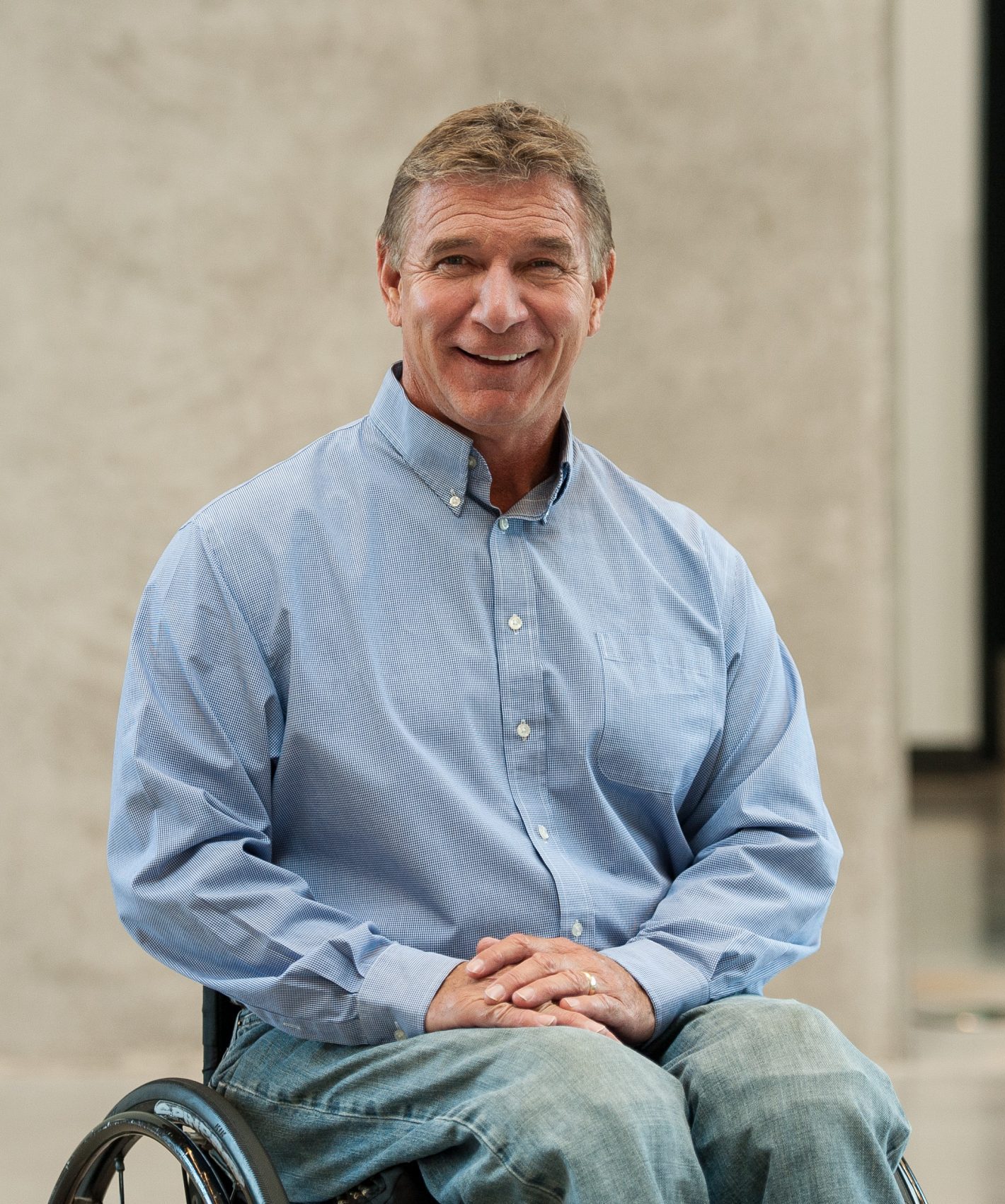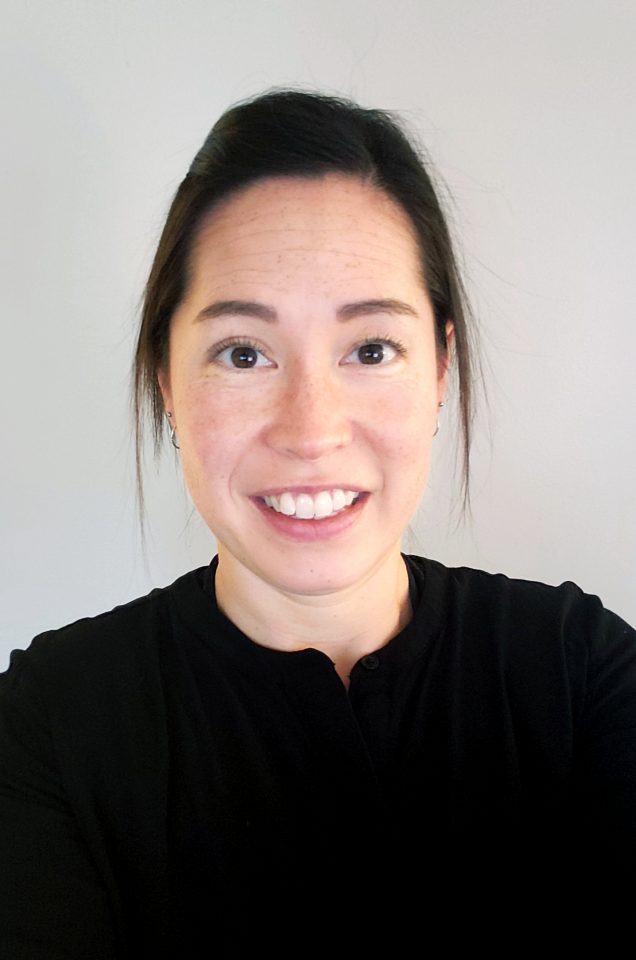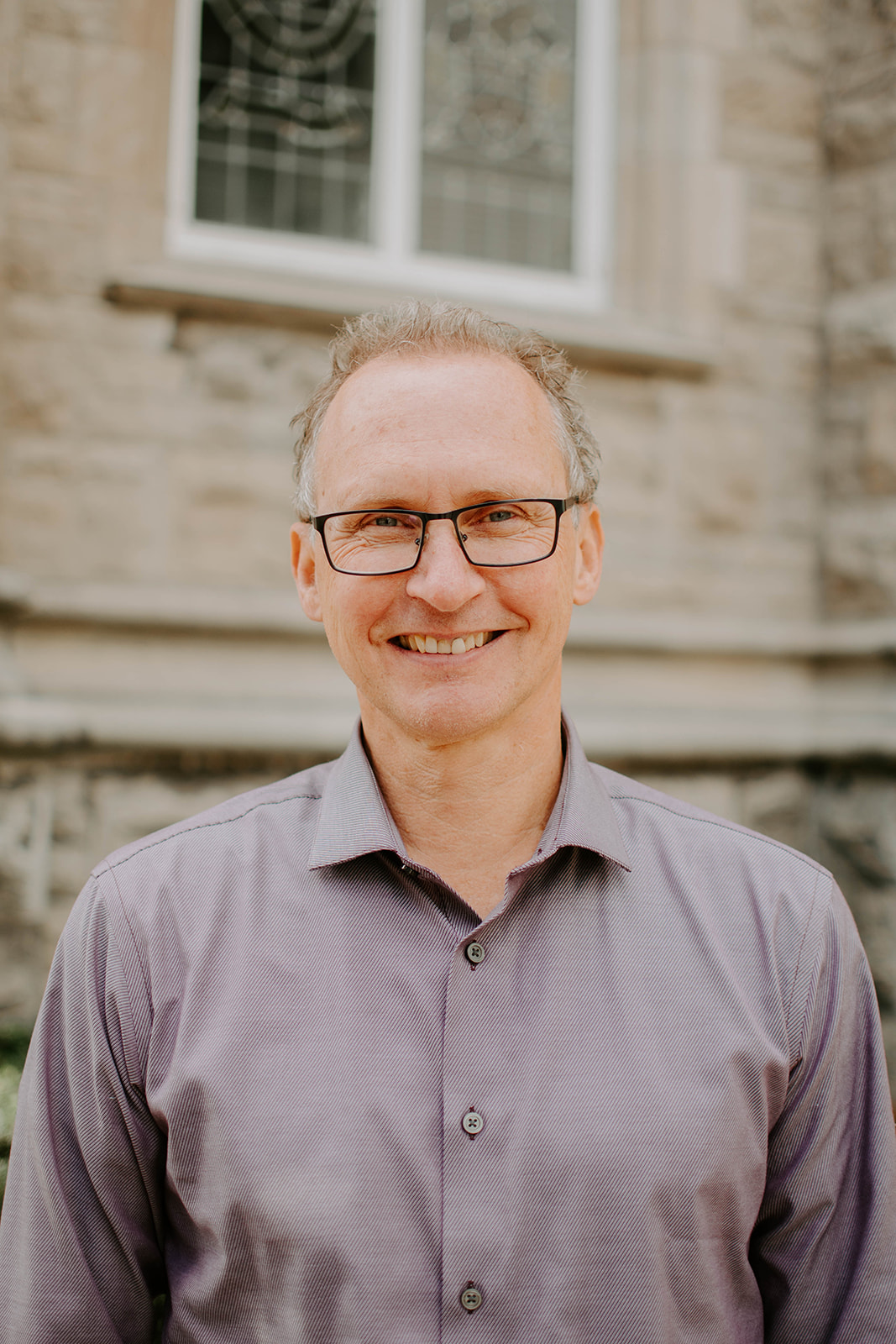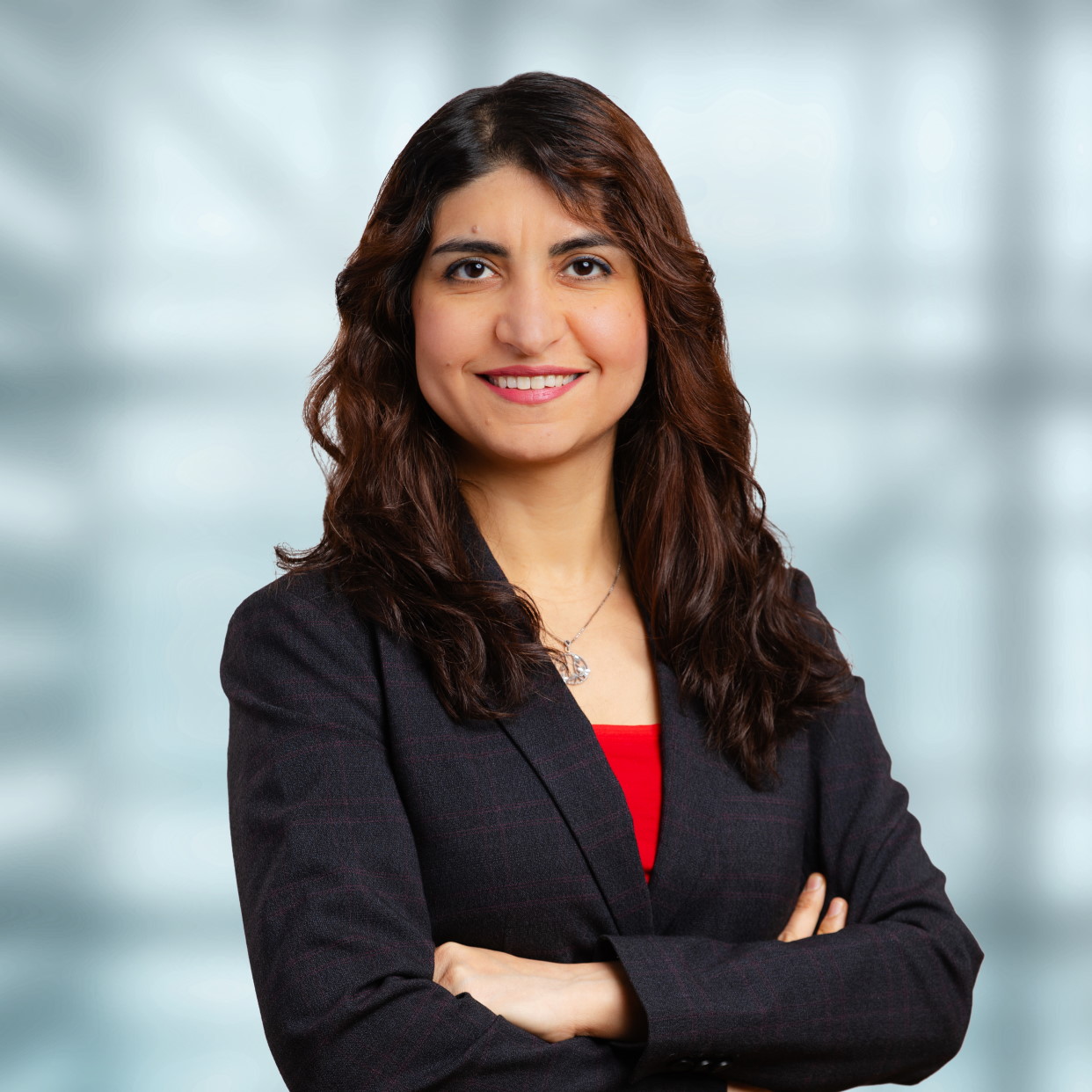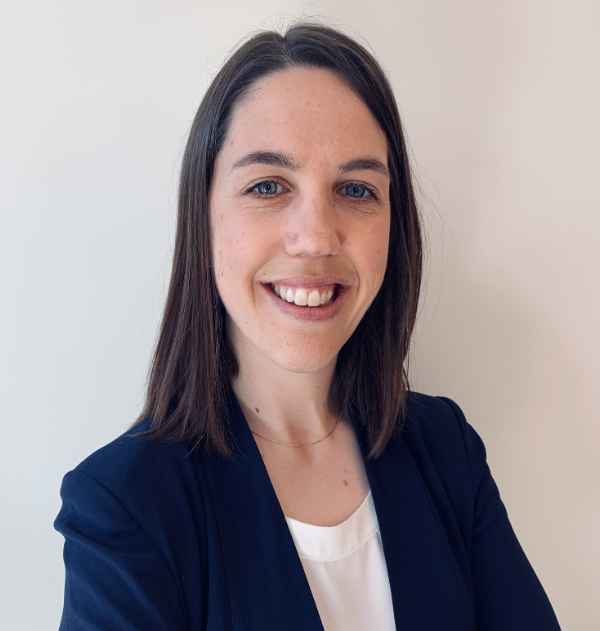
UBC Vancouver’s School of Kinesiology, UBC Okanagan’s School of Health and Exercise Sciences hosts a monthly UBC Exercise, Kinesiology, and Health Seminar Program. The seminar program is a forum for critical academic discussion between students and faculty members from all disciplines.
The seminars are designed to expand knowledge about topics from the broad field of kinesiology and health studies for graduate students and faculty members.
Upcoming Speakers:
Please check back here regularly for upcoming seminar speakers.
Past speakers:
Please look under each speaker profile for their recorded seminar.
2024/2025 Seminar Series:
“I don’t want to do this half-assed”: Unsettling teaching in a colonial context
Abstract:
Drawing on interviews with kinesiology faculty members at three different institutions, I reflect on numerous layers, challenges, and tensions faculty members share when they consider whether and how they engage with Indigenous authors, materials, and/or ways of knowing in their teaching practices. Together, these narratives point to the importance faculty members attach to this work as well as the barriers – institutional, interpersonal, disciplinary, etc. – they encounter in meaningfully engaging with these ideas in (and beyond) the classroom. Participants also draw attention to the institutional contexts within which they do this labour, highlighting the ways the university seems to value this kind of reflective pedagogy while often falling short of providing the supports and guidance that would make it more thinkable in the context of faculty members’ professional practice. In analyzing these interviews, I interrogate both the white, colonial, and ableist underpinnings of kinesiology as a discipline and the university as an “arm of the settler state” (Grande, 2018). Building on these reflections, I meditate on some possibilities for transformative change in the classroom.
Bio:
Dr. Jason (Jay) Laurendeau is a cishet abled white settler scholar occupying lands of Siksikáí’tsitapi (Blackfoot peoples). He is a Professor of Sociology and Affiliate Professor of Kinesiology and Physical Education at the University of Lethbridge, and President of the North American Society for the Sociology of Sport.
Location: Life Sciences Center, Room 1002
“Tenderly bumping elbows and stories": Collective Kinaesthetic learnings towards mutual flourishing
Abstract:
It’s hard to write a catchy abstract in a moment of mounting grief and fear. So many of the initiatives, and places, and people I love are increasingly under threat. I find myself surrounded by arguments over strategy. But if the last 10 years of collaborative, interdisciplinary, and intersectional research has taught me anything, it's that moments like these are served less by questions of what we should do, and more by methodological and often kinaesthetic reflections on how we might proceed. This talk draws on deeply embodied methodologies of thinking and making and moving alongside diverse scholars and community leaders of the Re-Creation Collective, the Just Movements CreateSpace, ismart, and the Maskwacis Disability Futures Project. It draws on intergenerational, interdisciplinary, and cross-community knowledge about how we might build personal and collective spaces for grief, learning, (be)longing, imagining, and even flourishing—together, across difference—from the edges of survival.
Bio:
Danielle Peers (they/them) is a Tier II Canada Research Chair in Disability and Movement Cultures, and an Associate Professor in the Faculty of Kinesiology, Sport, and Recreation at the University of Alberta. Dr. Peers studies how embodied practices and movement cultures (including art, recreation, and sport) can be used to transmit and transform a community’s values, politics, and inequities. Mobilizing embodied disability justice approaches, Peers prioritizes deep, intersectional collaborations, in order to co-create knowledges and practices that reduce harm and create more accessible, affirming, and transformative communities. Dr. Peers co-leads the Recreation Collective, the Just Movements CreateSpace, and is Co-PI on iSMART’s new $24 million NFRF project focused on creating transformational health technologies through participatory, and justice-based processes. Dr. Peers’ work draws from their experiences as a Paralympic athlete, coach, dancer, and filmmaker. Danielle has done extensive accessibility and equity consultation in education, sport and recreation, and non-profit sectors, and is currently the University of Alberta’s Academic Lead, Disability, Cultures and Access.
Location: Life Sciences Center, Room 1001
Who’s Protecting Whom? Red Herrings and Dog Whistles About Trans Athletes
Abstract:
It seems we are living during a cultural moment awash with enthusiastic, even joyful, embracement of women’s sport. We’ve been here before. A backlash will surely follow. Despite the appearance of support, a veiled attack on women’s sport is being levied through a movement claiming to “protect” girls and women athletes. Advocates of this movement claim that transgender girls and women are threats to fair play and safety despite the lack of substantive evidence to back these claims. The fear mongering undergirding this perspective tragically overshadows the genuinely significant threats to women’s and girls’ sport from sexual predators, emotionally abusive coaches, underfinancing, and unequal opportunities. Further, as trans athletes are deemed illegal on women’s and girls’ teams, what follows is a concomitant escalation of scrutiny of all athletes’ musculature, appearance, and ability. This legitimization of bodily surveillance will extend to those that look too queer, too immigrant, and too Black. In this presentation, I ask, who is protecting whom?
Bio:
Vikki Krane is a professor in Sport Management and Kinesiology at Bowling Green State University. They also are affiliated with the Women’s, Gender, and Sexuality Studies and American Culture Studies programs and are the Faculty Advocate for Belonging and Inclusion in the College of Education and Human Development. Krane teaches classes in social justice and sport, sport psychology, sport and sexuality, and research. Their research focuses on sex, gender, and sexuality in sport and their current scholarship focuses on transgender and intersex athletes. Krane’s edited book Sex, Gender, and Sexuality in Sport: Queer Inquiries was published in 2019 and Reimagining the Gendering of Sport will be published fall, 2025. Krane has been the editor of The Sport Psychologist and the Women in Sport and Physical Activity Journal. Additionally, Krane has been a voice for queer inclusion in sport throughout their career and have had a lead role in establishing the Social Justice through Sport and Exercise Psychology Symposium. Krane earned their doctorate at the University of North Carolina at Greensboro, master’s degree at the University of Arizona, and bachelor’s degree at Denison University.
Location: Life Sciences Center, Room 1001
Taking the Road Less Travelled...

Abstract: A career in the life-sciences affords unique opportunities to contribute to community health and well-being. Training in Kinesiology provides special perspectives and skills that can be applied in a variety of ways and a multiplicity of settings. Being ready to take advantage of opportunities – unconventional though they may seem – can mean that doors open on an array of enriching experiences with often surprising, and significant, consequences. An examination of a personal professional journey reveals intriguing examples in sport, medicine and public health of the importance of being prepared to seize unusual opportunities when they arise…with results that can be fulfilling and transformative!
Bio: Dr. Andrew Pipe is a graduate of Queen’s University, a Professor Emeritus in the Faculty of Medicine at the University of Ottawa, and a Clinician-Scientist at the University of Ottawa Heart Institute. He has been extensively involved in sport throughout his career, serving as a Team Physician to four Canadian National Teams, and participated in multiple Olympic, Pan-American, and Commonwealth Games. Following events at the Seoul Olympic Games in 1988, he led the development of Canada’s national anti-doping agency. He is a Past-President of the Canadian Academy of Sport and Exercise Medicine (CASEM) and formerly the President of the Commonwealth Games Association of Canada. He continues to advise several International Sport Federations and is a Board Member of the Athletics Integrity Unit. He has also been a tireless advocate for tobacco control, and was the founding Chair of Physicians for a Smoke-free Canada. He is frequently consulted on issues relating to physical activity and health, tobacco control and smoking cessation, drug use in sport, and approaches to cardiovascular disease prevention. He was named to the Order of Canada in 2002, made a member of the Canadian Olympic Hall of Fame (Builder), and previously Chaired the Board of the Heart and Stroke Foundation of Canada. Dr. Pipe was also appointed as a Special Advisor to the Future of Sport in Canada Commission in 2024.
Location: Djavad Mowafaghian Centre for Brian Health, Room LL101
Is physical activity for any-body? In/exclusion and the mythical norm in physical culture

Abstract: How/can physical activity be for any-body? What would or could that look like, in policy, in practice, in ‘vibes’? Dr. Griffin’s research aims to unpack the relationship between health and/or wellness imperatives (the neoliberal and moral obligation to engage in health or self-care related activities), the body positivity movement, sport and physical activity participation, and bodies of difference (bodies that do not conform to the norms of a society or culture on the basis of dis/ability, age, body size, gender, socioeconomic status, race, and/or sexuality). Dr. Griffin will discuss findings from her multi-phased SSHRC-funded project titled Physical Activity for Any-Body, which was a collaborative ethnography and appreciative inquiry employing social media analyses, narrative interviews, body mapping, and focus groups. She will share the insights that she and her research team have gleaned thus far, interpreting these data using critical (disability, queer, and race) theories and the lens of embodiment. Collectively, this work seeks to understand and ultimately strengthen the facets of physical cultures that make them inclusive of all community members and the bodies that they live in.
Bio: Dr. Meridith Griffin (she/her) is an Associate Professor in the Department of Health, Aging and Society at McMaster University. Her research focuses on embodied lived experiences of physical activity and active leisure participation. She often takes a life course perspective to understand how and why people make choices and engage (or not) in movement-related pursuits and other health-conscious behaviours. Rooted in a critical perspective that straddles the disciplinary boundaries of social gerontology, sociology of sport/physical activity, leisure studies, and sociological social psychology, she employs qualitative methodologies, including participatory, ethnographic, narrative, visual and arts-based methods.
Location: Life Sciences Building, Room 1001
Is your blood sugar undermining your workouts? Hyperglycemia impairs exercise responses and adaptations in muscle

Abstract: Chronic high blood glucose (known as hyperglycemia) is associated with an impaired adaptive response to aerobic exercise, which includes reduced improvements in aerobic fitness. Low aerobic fitness (also known as low VO2peak) is the single greatest predictor of mortality; it is critical that we establish and understand the causal factors that contribute to this phenotype. We demonstrated– in western diet (WD) feeding and streptozotocin (STZ) models of hyperglycemia in mice, and humans with hyperglycemia– that chronic high glucose directly regulates several molecular mechanisms that underpin low fitness. To test whether glucose lowering therapy can restore the response to exercise, we treated hyperglycemic mice with an SGLT2 inhibitor, Canagliflozin (Cana). Exercise responses and adaptations were normalized, and muscle-specific adaptive remodeling was restored when hyperglycemia was reduced using SGLT2i. Conclusions: These data demonstrate, for the first time, that hyperglycemia directly impairs whole-body and muscles-specific responses and adaptations. Future Directions: As rates of metabolic disease skyrocket globally, the incidence of hyperglycemia is growing rapidly, which may lead to a population that is increasingly resistant to improving VO2peak with training. We are now investigating other unidentified skeletal muscle systems that are (dys)regulated by hyperglycemia.
Bio: Tara is a Banting and Best Insulin Discovery Assistant Professor at the University of Toronto, in the Department of Physiology. She completed her graduate training at the University of Guelph, with Drs. David Dyck and David Wright, where she focused on identifying how cytokines and hormones regulate key metabolic pathways in endocrine tissues during exercise. In 2016, she moved to Joslin Diabetes Center/Harvard Medical School for her first postdoc and studied the intersection of hyperglycemia and exercise in mice and humans. In 2021, she began applying her everlasting interest in stress biology towards studying pancreatic ꞵ cell stress and metabolism during the progression to diabetes. Her group will focus on decoding the many putative and unknown links between hyperglycemia, cell stress and diabetes (T1D and T2D) in important endocrine tissues, including pancreatic ꞵ cells and skeletal muscle.
Location: Life Sciences Building, Room 1002
‘Something old, something new, something borrowed, and something blue’: 45 – year reflections on exercise psychology and behaviour change
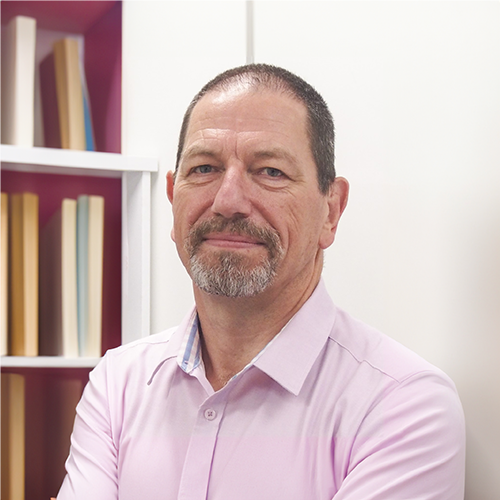 My first academic appointment was in 1979. If I have any expertise, it’s in psychology and health behaviour change. But initially I was searching for something and couldn’t quite find it. Career trajectories change and I will briefly outline how I have changed the emphasis of my work over that time period (something old). This may have importance for early career academics wondering about their own career trajectories. Next, I will discuss some work that best reflects something borrowed. Early in my career I was absorbed by certain psychological theories. But that changed. How and why? Did I really have something new? We were among the first to pursue ‘sedentary behaviour’ as a distinct field of research. What did we do and how has that field developed? Finally, something blue. You will have to attend to hear about that one!
My first academic appointment was in 1979. If I have any expertise, it’s in psychology and health behaviour change. But initially I was searching for something and couldn’t quite find it. Career trajectories change and I will briefly outline how I have changed the emphasis of my work over that time period (something old). This may have importance for early career academics wondering about their own career trajectories. Next, I will discuss some work that best reflects something borrowed. Early in my career I was absorbed by certain psychological theories. But that changed. How and why? Did I really have something new? We were among the first to pursue ‘sedentary behaviour’ as a distinct field of research. What did we do and how has that field developed? Finally, something blue. You will have to attend to hear about that one!
Stuart Biddle is a research professor in the Centre for Health Research at the University of Southern Queensland, near Brisbane, Australia, and holds honorary positions at the University of Queensland and Baker Heart and Diabetes Institute, both in Australia, and the University of Jyväskylä in Finland. He was Professor at Loughborough University, UK, 1998-2014, including being Head of the School of Sport & Exercise Sciences, 2001-2007.
His current research is on sedentary behaviour and physical activity behaviour change, as well as mental health. He was ranked 16th all-time worldwide for career-long citation impact in ‘sport sciences’ up until the end of 2021 and is a Clarivate Highly Cited researcher (Scopus h-index=88; Google Scholar h-index=134).
Stuart has been senior author of the book ‘Psychology of Physical Activity’ for over 30 years, with the 4th edition published by Routledge in 2021. He has been involved in the production of physical activity and sedentary behaviour guidelines for Australia, Canada, UK, WHO, and for obesity in Singapore. Stuart has an Honorary Doctorate from the Norwegian School of Sport Sciences.
Location: Life Sciences Building, Room 1002
2023/24 Seminar Series:
New Evidence on the Role of Exercise as a Cancer Treatment
 Exercise is established as a supportive care intervention in oncology to improve health-related fitness, symptoms, and quality of life in cancer patients and survivors. Exercise has also been proposed as a possible cancer treatment; however, there are an infinite number of clinical oncology settings in which exercise may be tested as a cancer treatment. These distinct clinical oncology scenarios have implications for the treatment goals of exercise, the feasibility of exercise, the likelihood of exercise producing a clinical benefit, and the design of preclinical and clinical research. In this presentation, I will propose a novel framework to guide research on exercise as a cancer treatment across distinct clinical oncology settings. I will then summarize recent preclinical, observational, and intervention studies examining exercise as a cancer treatment across these different clinical scenarios and offer directions for future research.
Exercise is established as a supportive care intervention in oncology to improve health-related fitness, symptoms, and quality of life in cancer patients and survivors. Exercise has also been proposed as a possible cancer treatment; however, there are an infinite number of clinical oncology settings in which exercise may be tested as a cancer treatment. These distinct clinical oncology scenarios have implications for the treatment goals of exercise, the feasibility of exercise, the likelihood of exercise producing a clinical benefit, and the design of preclinical and clinical research. In this presentation, I will propose a novel framework to guide research on exercise as a cancer treatment across distinct clinical oncology settings. I will then summarize recent preclinical, observational, and intervention studies examining exercise as a cancer treatment across these different clinical scenarios and offer directions for future research.
Kerry S. Courneya, Ph.D. is a Professor and Canada Research Chair in the Faculty of Kinesiology, Sport, and Recreation at the University of Alberta. He received his B.A. (1987) and M.A. (1989) in Kinesiology from Western University in London, Ontario, and his Ph.D. (1992) in Kinesiology from the University of Illinois at Urbana-Champaign. He spent five years as an assistant professor at the University of Calgary (1992-1997) before moving to the University of Alberta in 1997. His research program focuses on the role of exercise after a cancer diagnosis including how exercise might help cancer patients prepare for treatments, tolerate and respond to treatments, recover after treatments, and improve treatment outcomes. He has received numerous awards for his research including the Manulife Prize for the Promotion of Active Health, the O. Harold Warwick Prize from the Canadian Cancer Society, and the Award of Research Excellence from the Canadian Association of Psycho-Oncology. In 2023, Prof. Courneya was appointed an Officer in the Order of Canada for his groundbreaking research in exercise oncology.
Location: Life Science room 1001
The Perfection Trap
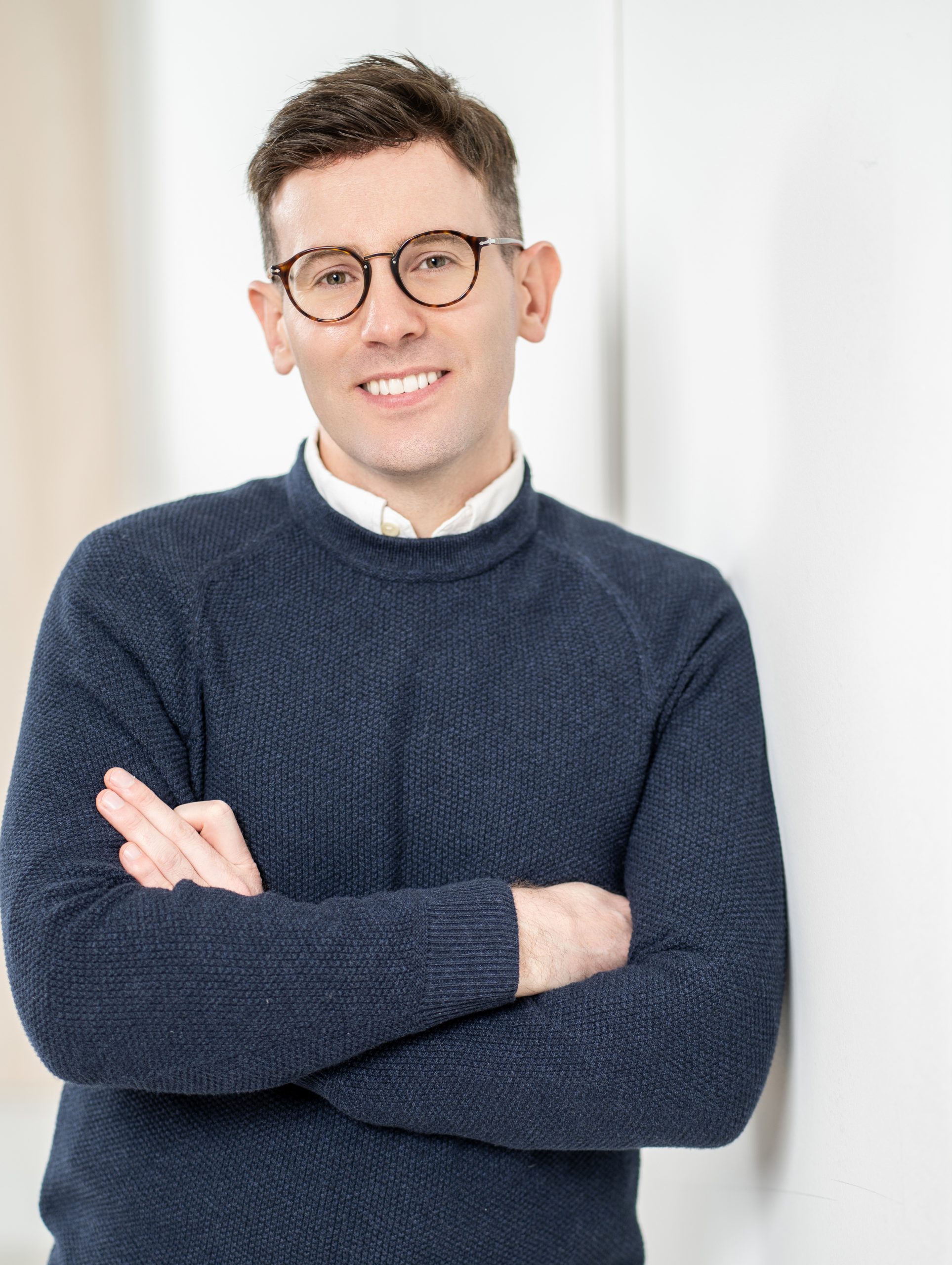
This talk will be all about the hidden epidemic of perfectionism in the Western world. Dr. Curran will discuss the overzealous, hypercriticality that germinates in a society that always wants more, and how, while perfectionism ostensibly seeks to improve us, it ultimately leads to hugely negative consequences for our personal wellbeing, performances, and the welfare of our communities at large. If you've ever wondered what's the matter with perfectionism, or why it seems to be the defining characteristic of our tumultuous times, this talk is for you.
Dr. Thomas Curran is a world leading expert on perfectionism, author of the best-selling book The Perfection Trap, and associate professor of psychology at the London School of Economics and Political Science. His TED Talk on perfectionism received over three million views, he has written for major international publications such as TIME magazine and the Harvard Business Review, and his work has been featured in the BBC, New Scientist, New York Times, CNN, and Wall Street Journal.
Location: Centre for Brain Health, Lecture Theatre 101
Liberating Movement Science from the Laboratory
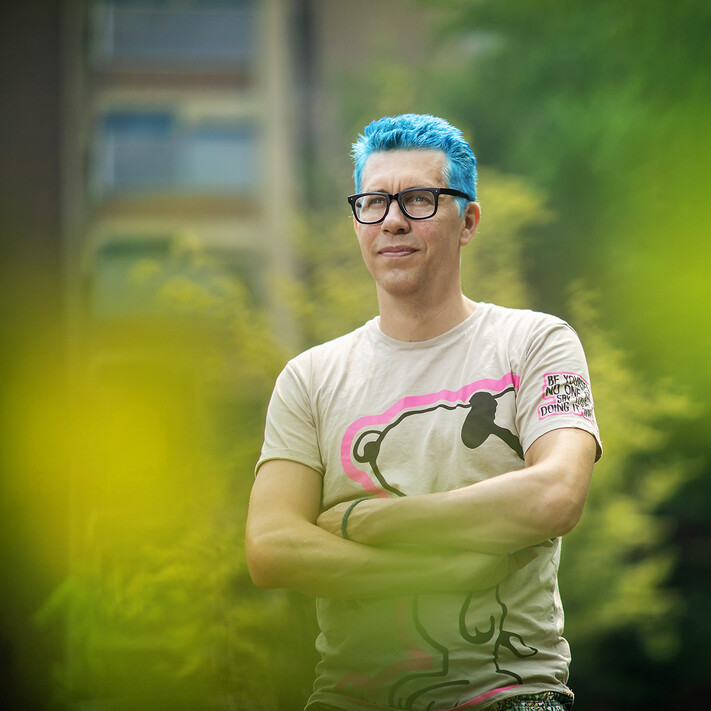 Massive progress in machine learning technologies makes it easy and progressively precise to quantify movement in everyday situations. I will discuss how this enables the understanding of wider and wider ranges of behaviors in the real world. This development promises to make our research far more useful for the world. At the same time, our theories and ways of thinking need to adjust to a world in which complexity is beyond the grasp of us human scientists.
Massive progress in machine learning technologies makes it easy and progressively precise to quantify movement in everyday situations. I will discuss how this enables the understanding of wider and wider ranges of behaviors in the real world. This development promises to make our research far more useful for the world. At the same time, our theories and ways of thinking need to adjust to a world in which complexity is beyond the grasp of us human scientists.
Dr. Konrad Kording runs his lab at the University of Pennsylvania. Konrad is interested in the question of how the brain solves the credit assignment problem and similarly how we should assign credit in the real world (through causality). In extension of this main thrust he is interested in applications of causality in biomedical research. Konrad has trained as student at ETH Zurich with Peter Konig, as postdoc at UCL London with Daniel Wolpert and at MIT with Josh Tenenbaum. After a decade at Northwestern University he is now PIK professor at UPenn.
Diasporic Bodies: An exploration of body image and body belonging among first and second generation Chinese Canadian women
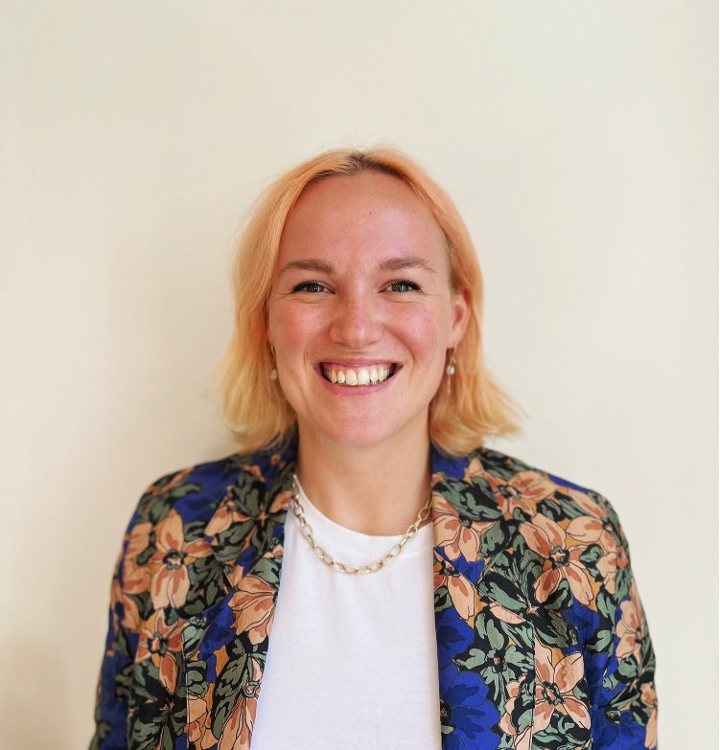 This research seminar will unpack preliminary findings from a project exploring how body image interacts with diasporic identities and transnational belonging. Semi-structured interviews were conducted with 32 first and second generation Chinese Canadian women to explore their everyday embodied experiences and to map out (spatially) how different social and material atmospheres (online/offline) create different experiences of body image and of belonging. The notion of ‘diasporic bodies’ is mobilised as a critical concept and theoretical framework to capture the shifting and dynamic quality of participant’s embodied experiences as they move in and between spaces such as the home, public spaces (the street, the gym, work/university) and their social media feeds. The findings explore the multiple (often conflicting) body ideals that shape first and second generation Chinese Canadian women’s notions of body belonging, before moving on to consider three distinct socio-material spaces that emerged from the analysis as particularly significant for this diasporic group; 1) body talk in the home, 2) globalised mobilities and belonging 3) digital diasporas.
This research seminar will unpack preliminary findings from a project exploring how body image interacts with diasporic identities and transnational belonging. Semi-structured interviews were conducted with 32 first and second generation Chinese Canadian women to explore their everyday embodied experiences and to map out (spatially) how different social and material atmospheres (online/offline) create different experiences of body image and of belonging. The notion of ‘diasporic bodies’ is mobilised as a critical concept and theoretical framework to capture the shifting and dynamic quality of participant’s embodied experiences as they move in and between spaces such as the home, public spaces (the street, the gym, work/university) and their social media feeds. The findings explore the multiple (often conflicting) body ideals that shape first and second generation Chinese Canadian women’s notions of body belonging, before moving on to consider three distinct socio-material spaces that emerged from the analysis as particularly significant for this diasporic group; 1) body talk in the home, 2) globalised mobilities and belonging 3) digital diasporas.
Dr. Hester Hockin-Boyers is an Assistant Professor in the Department of Sport and Exercise Sciences at Durham University whose research broadly coheres around exercise, health and digital spaces, sociology of the body, and gender.
Hester's recently published work has covered topics such as; how exercise is constructed as 'normal' or 'pathological' in the context of eating disorder recovery, transformation photos on Instagram, and the interaction between women's mental health and social media use. She is currently working on a UKRI/Mitacs grant project with colleagues in the School of Kinesiology (Moss Norman, Patricia Vertinsky and Aishwarya Ramachandran) exploring how ‘diasporic identities’ shape personal experiences of the body. The project piloted a new digital method, developed by Hester, called ‘content elicitation’, which seeks to capture the dynamic, mobile and everyday nature of interactions with digital content.
No recording available.
Building Indigenous Resilience Through Sports
 Waneek Horn-Miller's powerful presentations and keynotes are aimed at reconciling relationships between Indigenous and non-Indigenous peoples to create culturally safe spaces. Waneek is an advocate for building Indigenous sport and has worked with the Assembly of First Nations to develop their sport, fitness, and health strategy. Drawing on her athletic experiences as the former co-captain of Canada's Olympic women's water polo team, Waneek shares her warrior story and teaches how to build sports motivation, and self-esteem through a balance of education and sport. During this lecture, Waneek will speak to Indigenous and non-Indigenous audiences on opportunities for reconciliation in sport, and why it is important that we all must strive for our dreams. She believes that “If we want reconciliation, for ourselves and our children, we need to have hard conversations, build common ground, and really listen to each other.”
Waneek Horn-Miller's powerful presentations and keynotes are aimed at reconciling relationships between Indigenous and non-Indigenous peoples to create culturally safe spaces. Waneek is an advocate for building Indigenous sport and has worked with the Assembly of First Nations to develop their sport, fitness, and health strategy. Drawing on her athletic experiences as the former co-captain of Canada's Olympic women's water polo team, Waneek shares her warrior story and teaches how to build sports motivation, and self-esteem through a balance of education and sport. During this lecture, Waneek will speak to Indigenous and non-Indigenous audiences on opportunities for reconciliation in sport, and why it is important that we all must strive for our dreams. She believes that “If we want reconciliation, for ourselves and our children, we need to have hard conversations, build common ground, and really listen to each other.”
Biography:
Similar to the arduous process of making wampum beads, the journey of that Waneek Horn-Miller doesn’t begin and end with being a Olympic Water Polo athlete. A Mohawk from the Kahnawake Mohawk Territory near Montreal, Waneek was behind the lines during the Oka crisis in 1990 when she was stabbed by a Canadian soldier’s bayonet. It was a near-death experience that marked a turning point in her life. Waneek has overcome discrimination and violence to emerge as one of North America’s most inspiring female First Nations speakers with a compelling perspective and dynamic stories to share.
As a member of the Canadian women’s national water polo team, Waneek won a gold medal at the 1999 Pan American Games in Winnipeg. She then served as co-captain of the first Canadian women’s Olympic water polo team that finished fifth at Sydney 2000 Olympic. During the lead-up to those Games, Horn-Miller appeared on the cover of TIME magazine. She went on to help Canada win a bronze medal at the 2001 FINA World Championships. Waneek has also competed in five North American Indigenous Games in swimming and rifle shooting.
As one of Canada’s few Indigenous Olympians, Waneek has used her unique experiences in life and sport combined with a passion for her culture to influence Indigenous and non-Indigenous leadership in sport and wellness, Indigenous business, women in business and community building. The Canadian Association for the Advancement of Women and Sport and Physical Recently named her one of Canada’s most influential women in sport.
Waneek works and travels extensively throughout the world as a motivational speaker and now as a graduate student at UBC, where she studies aspects of Indigenous motivation within the Indigenous Studies in Kinesiology program (School of Kinesiology). She is a passionate activist for sport, fitness, and wellness, and shares her journey from being stabbed during the Oka Crisis to the Olympic Games as an example of the power of sport to help Indigenous youth focus their emotions and experiences into achievement.
Her presentations and keynotes are aimed at bridging the gap and repairing relationships between Indigenous and non-Indigenous peoples. While she recently stepped down from her role as for the MMIWG Inquiry to focus on her family, she continues support the goal of the Inquiry and advocates on Indigenous issues in other ways to help build healthy and prosperous communities. Waneek is an advocate for building Indigenous sport and has worked with the Assembly of First Nations to develop their sport, fitness, and health strategy. Drawing on her experiences as the former co-captain of Canada's Olympic women's water polo team, Waneek shares her story and teaches how to build self-esteem through a balance of education and sport. During this lecture, Waneek will speak to Indigenous and non-Indigenous audiences on issues of reconciliation, sport, and why it is important we must all strive for our dreams. She believes that “If we want reconciliation, for ourselves and our children, we need to have hard conversations, build common ground, and really listen to each other.”
2022/2023 Seminar Series:
Fasting is amazing for mice, but is it good for you?
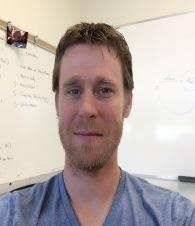
Intermittent fasting is emerging as a dietary strategy to induce weight loss and improve cardiometabolic health. In mice, prolonged fasting induces beneficial adaptations in skeletal muscle and in whole body health that mimic the benefits of regular exercise. However, in humans it is less clear whether fasting per se is beneficial or if fasting is simply a simple means of restricting calories. This talk will explore the evidence supporting/refuting the benefits of fasting as a means of improving health in humans with a focus on skeletal muscle metabolism and function.
**No recording available**
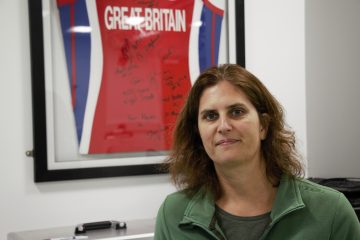 Reflections of sports science support of the Para athlete across 25 years
Reflections of sports science support of the Para athlete across 25 years
There has been a rapid public interest in Para sport since London 2012 Paralympic Games which has been matched by a continued advancement in the standard of elite competition. High-performance athletes are high-performance whether they have a disability or not. However, Para sport adds a touch of complexity to the delivery of some practitioner’s science and medicine delivery methods and the knowledge gleaned from the literature may not be directly applicable to the wheelchair athlete. Clearly there are two major components of wheelchair sports performance, these being the athlete and the chair. Therefore, the athlete and sports wheelchair must be considered as one integrated unit or performance will be affected; and for this an understanding of the physiological consequences of the physical impairment is a necessity.
This lecture will reflect on Dr. Tolfrey's professional activities since attending the Atlanta Paralympic Games in 1996 as a PhD student and sport science support officer to Wheelchair Racing. It will highlight the development of her research portfolio from working within the sports of wheelchair basketball, wheelchair tennis, wheelchair rugby and the sport of handcycling.
In Dr. Tolfrey's capacity as the Director of the Peter Harrison Centre for Disability Sport at Loughborough University, projects leading into Tokyo 2020(21) and future lines of enquiry will be outlined. She will illustrate the very broad areas where the evidence-based practice is being used and developed, particularly using experiences from the ‘real world’ of preparing athletes for the Paralympic Games, where ParalympicsGB has notably been very successful.
Professor Tolfrey is Director of the Peter Harrison Centre for Disability Sport (PHC) at Loughborough University in the UK and a Professor of Applied Disability Sport whose research focusses on the ergonomics of wheeled mobility (physical activity to high performance sport), with expertise in Para sport physiology.
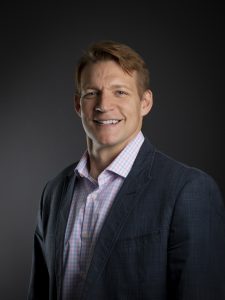 Together for us: Utilizing Social Identity Theory to enhance youth mental health in sport
Together for us: Utilizing Social Identity Theory to enhance youth mental health in sport
During the COVID-19 pandemic, Canadian adolescents experienced a loss of social connection with peers and reported a two-fold increase in mental health issues. As youth begin to re-engage in sport, there is an opportunity to promote mental health. A key facet to consider is the identity youth associate with their sport team (i.e. social identities).
This talk will overview the ongoing research in the Groups For Youth Development (G4YD) lab to understand and harness social identity in youth sport teams at a competitive and recreational level. Specifically, it will share findings from the Together For Us (T4Us) intervention designed to enhance mental health in youth competitive sport teams.
Dr. Mark Bruner (Ph.D.) is a Canada Research Chair in Youth Development through Sport and Physical Activity and a Professor in the School of Physical and Health Education at Nipissing University.
Location: Life Sciences Centre (LSC), Room 1002, 2350 Health Sciences Mall, Vancouver, BC V6T 1Z3
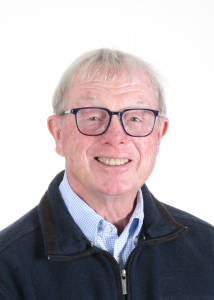 Rx Exercise: Standard of care for cancer patients - Kinesiology makes a difference!
Rx Exercise: Standard of care for cancer patients - Kinesiology makes a difference!
This talk will address a number of issues specific to cancer and exercise. The introduction of exercise in the cancer population in BC is, in part, the history of Abreast in A Boat and the global impact that program has had in changing the way society views cancer. The ‘UBC Cancer gym’ was developed for multi-center, supervised, exercise research programs in breast cancer patients and has had a profound impact on clinical practice and the approach to management of patients. Many gaps remain in the exercise prescription and future research needs to examine energy balance programs for cancer patients. Moving forward, Kinesiology has an important role to play in health care.
Dr. Don McKenzie (OC, MSM, MC, PhD, LLD(Hon)) is professor emeritus in the School of Kinesiology and the Division of Sports and Exercise Medicine within the Department of Family Practice, at the University of British Columbia. He has a doctoral degree in exercise physiology from Ohio State University and completed his medical training at UBC. He has been the team physician for the Canadian Canoe Team for over 30 years and has attended nine Olympic Games. Dr. McKenzie has served as the chair of the Medical and Anti-doping Committee of the International Canoe Federation and as a member of the IOC Medical Commission. He also has served as president of the Canadian Society of Exercise Physiology and currently is Chair of the Board of Directors of the Canadian Centre for Ethics in Sport. He has had an active research program in respiratory exercise physiology and exercise and breast cancer that has graduated more than 50 students. Dr. McKenzie is the founder of Abreast in A Boat, a women's dragon boat team composed of breast cancer survivors. This special blend of paddling as medicine has spread world-wide.
Location: Life Sciences Centre (LSC), Room 1002, 2350 Health Sciences Mall, Vancouver, BC V6T 1Z3
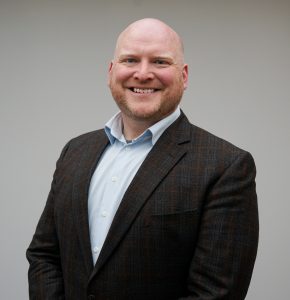
Unexpected adaptative responses in mitochondria and muscle force during cancer cachexia
Cachexia occurs in 20%–80% of people with cancer. The loss of skeletal muscle during cachexia is not reversed by nutritional support and can reduce patient resilience and survival. Luca Delfinis determined how cachexia progresses in relation to metabolic dysfunction in different muscle types. In a tumor-bearing mouse model, it was observed that muscle weakness preceded atrophy at early stages of disease. At this same time, a locomotor muscle (quadriceps) demonstrated reduced mitochondrial oxygen consumption suggesting a compromised ability to produce ATP, whereas the diaphragm exhibited increased reactive oxygen species generation. In later stages of cancer, when atrophy was observed in both muscle groups, specific force production surprisingly recovered only in quadriceps. Furthermore, super-compensations in mitochondrial metabolism eventually occurred in both muscles at later stages of cancer. These results suggest that muscles experience metabolic stress early during cancer that subsequently triggers adaptive improvements in mitochondria that may mitigate the severity of weakness as cancer progresses. The findings also highlight how the effects of cancer on one muscle do not predict the response in another muscle. Exploring heterogeneous responses of muscle to cancer may reveal new mechanisms underlying distinct sensitivities, or resistance, to cancer cachexia.
Location: Life Sciences Centre (LSC), Room 1001, 2350 Health Sciences Mall, Vancouver, BC V6T 1Z3
Mood states and mental health in sport, exercise, and life
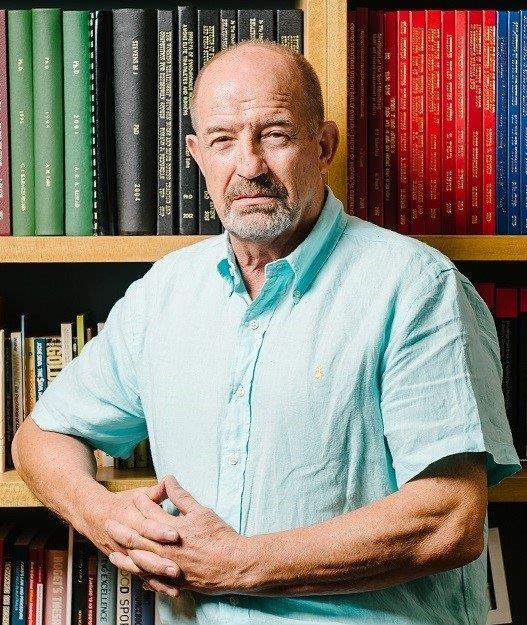 Mood responses are an established mental health indicator. Gauging mental health status over time often involves periodic mood assessment using a standardized measure, such as the Profile of Mood States or the Brunel Mood Scale, a process referred to as mood profiling. Comparison of observed mood scores against relevant normative data is central to effective mood profiling. Dr. Terry’s presentation will address recent developments in mood profiling and identify key features of the mood profiling process that influence its efficacy. Several examples from his work with elite athletes over the past 40 years will be included in the presentation.
Mood responses are an established mental health indicator. Gauging mental health status over time often involves periodic mood assessment using a standardized measure, such as the Profile of Mood States or the Brunel Mood Scale, a process referred to as mood profiling. Comparison of observed mood scores against relevant normative data is central to effective mood profiling. Dr. Terry’s presentation will address recent developments in mood profiling and identify key features of the mood profiling process that influence its efficacy. Several examples from his work with elite athletes over the past 40 years will be included in the presentation.
Dr Peter Terry is Dean of the Graduate Research School and Professor of Psychology at the University of Southern Queensland. He received his PhD in the Institute of Social and Applied Psychology at the University of Kent (UK). Peter has conducted extensive research in the areas of mood responses, applications of music in sport and exercise, and psychometrics. He is Past-President of the Asian-South Pacific Association of Sport Psychology (ASPASP) and a Fellow of the Australian Psychological Society (APS), the Australian Sport Medicine Federation (ASMF), the Royal Society of Medicine (RSM), and the British Association of Sport and Exercise Sciences (BASES). As an applied practitioner over the past 35 years, Peter has provided psychological support to more than 1,000 international and professional performers, including a host of Olympic medalists. He has worked as a sport psychologist at nine Olympic Games and more than 100 other international events.
No recording available.
Anticipation in sports: Integrating contextual and multisensory information
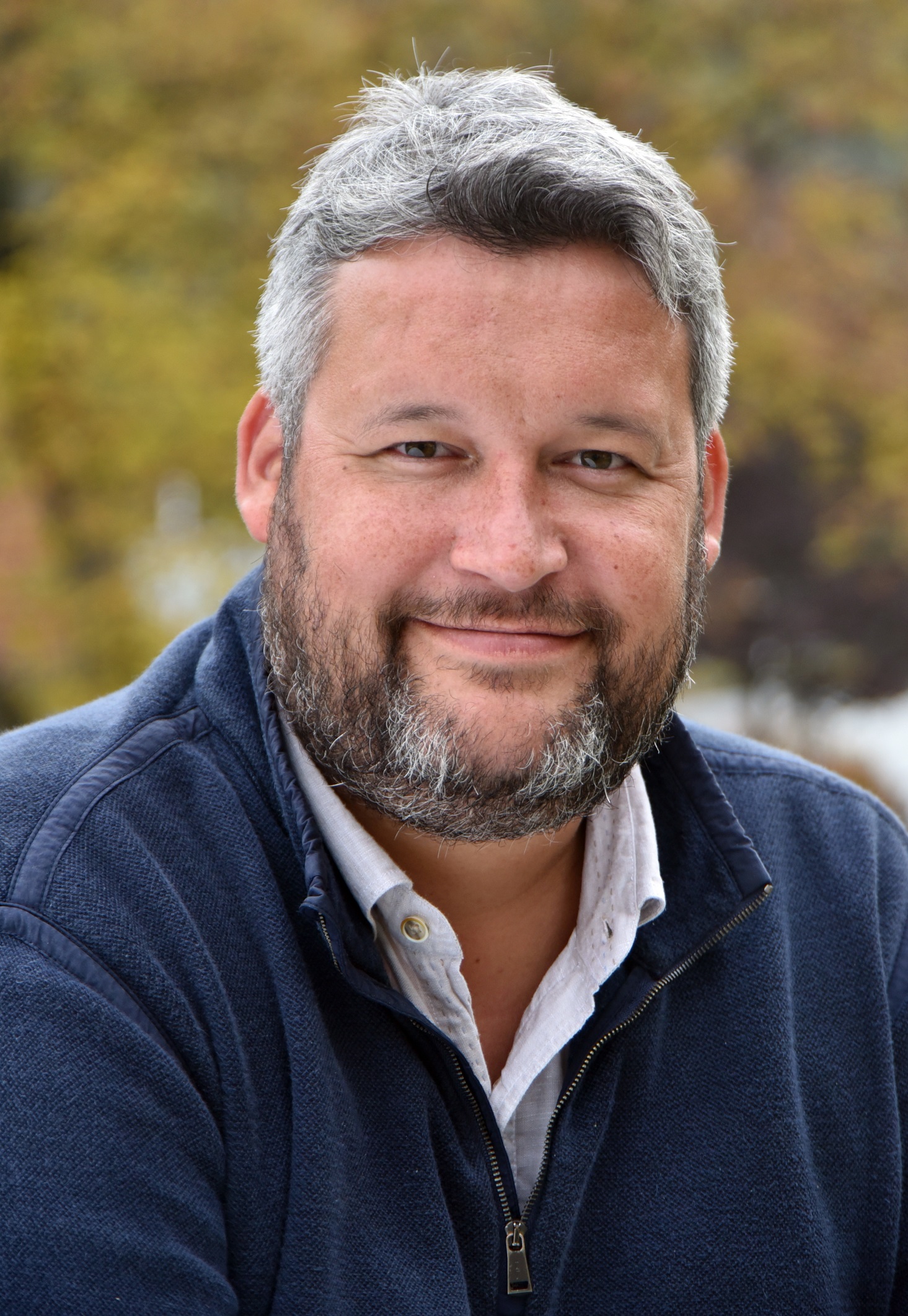 Since its infancy in the early 1980s research on anticipation in sports has witnessed a steep incline in both research interest and output. Given the increasing importance of research on anticipation in the field of sport psychology and skill acquisition, the aim of my talk is twofold: First, I will very briefly synthesize the achievements and contributions of research on anticipation in sports over the last 40 years (see Loffing & Cañal-Bruland, 2017). Second, and more importantly, I aim to outline open research questions that we and others have recently started to address and that in my opinion require and deserve systematic examination. In this context, I will present a number of recent studies from our lab focussing on the use and integration of i) contextual information and ii) multisensory information in anticipation.
Since its infancy in the early 1980s research on anticipation in sports has witnessed a steep incline in both research interest and output. Given the increasing importance of research on anticipation in the field of sport psychology and skill acquisition, the aim of my talk is twofold: First, I will very briefly synthesize the achievements and contributions of research on anticipation in sports over the last 40 years (see Loffing & Cañal-Bruland, 2017). Second, and more importantly, I aim to outline open research questions that we and others have recently started to address and that in my opinion require and deserve systematic examination. In this context, I will present a number of recent studies from our lab focussing on the use and integration of i) contextual information and ii) multisensory information in anticipation.
Dr. Rouwen Cañal Bruland is Professor for the Psychology of Human Movement and Sport at the Faculty of Social and Behavioural Sciences at Friedrich Schiller University Jena, Germany, where he also chairs the Department for the Psychology of Human Movement and Sport. Before joining FSU Jena in 2016, Rouwen served as an Assistant Professor at the Department of Human Movement Science at the Vrije Universiteit Amsterdam, the Netherlands, for almost nine years. He completed his PhD and his undergraduate studies at the University of Münster, Germany. Rouwen works at the intersection of human movement science, experimental and cognitive psychology to study interactions between action, perception and cognition. He regularly publishes his work in leading psychology, neuroscience, sport science as well as multidisciplinary journals. Currently, Rouwen serves as editorial board member for several journals including Psychology of Sport and Exercise, Human Movement Science and Journal of Sports Sciences.
No recording available.
2021/2022 Seminar Series:
Dr. Mark Haykowsky, University of Alberta
"Mechanisms of Exercise Intolerance in older breat cancer survivors: Similarities between heart failure and preserved ejection fraction"
Moving Together: Social relationships, physical activity, and well-being in older adulthood
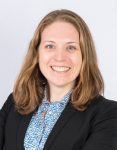
Social relationships and physical activity are important for well-being, but often decline with age. Group physical activity is a context that can serve both needs concurrently, and also have synergistic effects: social support can encourage physical activity, and physical activity provides a meaningful context for developing social relationships. However, while the connection between physical activity and social support is well documented, there are important gaps in our understanding of how to facilitate support in group exercise contexts for older adults. I will overview our work synthesizing the literature on social support and physical activity in older adulthood; discuss findings of several studies exploring social support needs, social barriers, and strategies for facilitating support in the group physical activity context; and share work on developing conceptual models to guide practical efforts to improve facilitation of social support in this context. I will also discuss our work examining social needs and challenges among older adults in the context of the COVID-19 pandemic, and considerations for strategies for facilitating social support in online physical activity program delivery.
Dr.Brendon Gurd, Queens University, Canada
Individual responses to exercise training; exploring whether or not “non-responders” exist, how we would identify a “non-responder” with confidence, and what we would do once we’ve identified that someone is a “non-responder
Dr. Heather Gainforth
Engaging in Research: Advancing the Science and Practice of Research Partnership
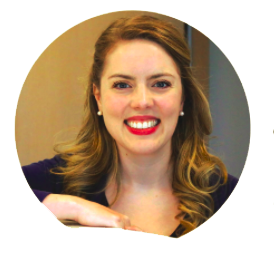
Dr. Gainforth’s academic training in Health Promotion, Knowledge Translation and Kinesiology has fostered her belief that evidence-based health promotion interventions and guidelines must be widely disseminated both in general and special populations. Her research aims to close the gap between health behaviour change research and practice by examining knowledge translation – the act of moving research evidence into the hands of research users. Her emerging research program aims to identify, develop and implement novel strategies for disseminating evidence-based health information and interventions to populations. Her systems-based research is grounded in behaviour change theory and techniques and is guided by strong collaborations between researchers and communities.
Post seminar Q&A not included.
Dr. Kate Thomas
Turning up the heat on cardiovascular disease
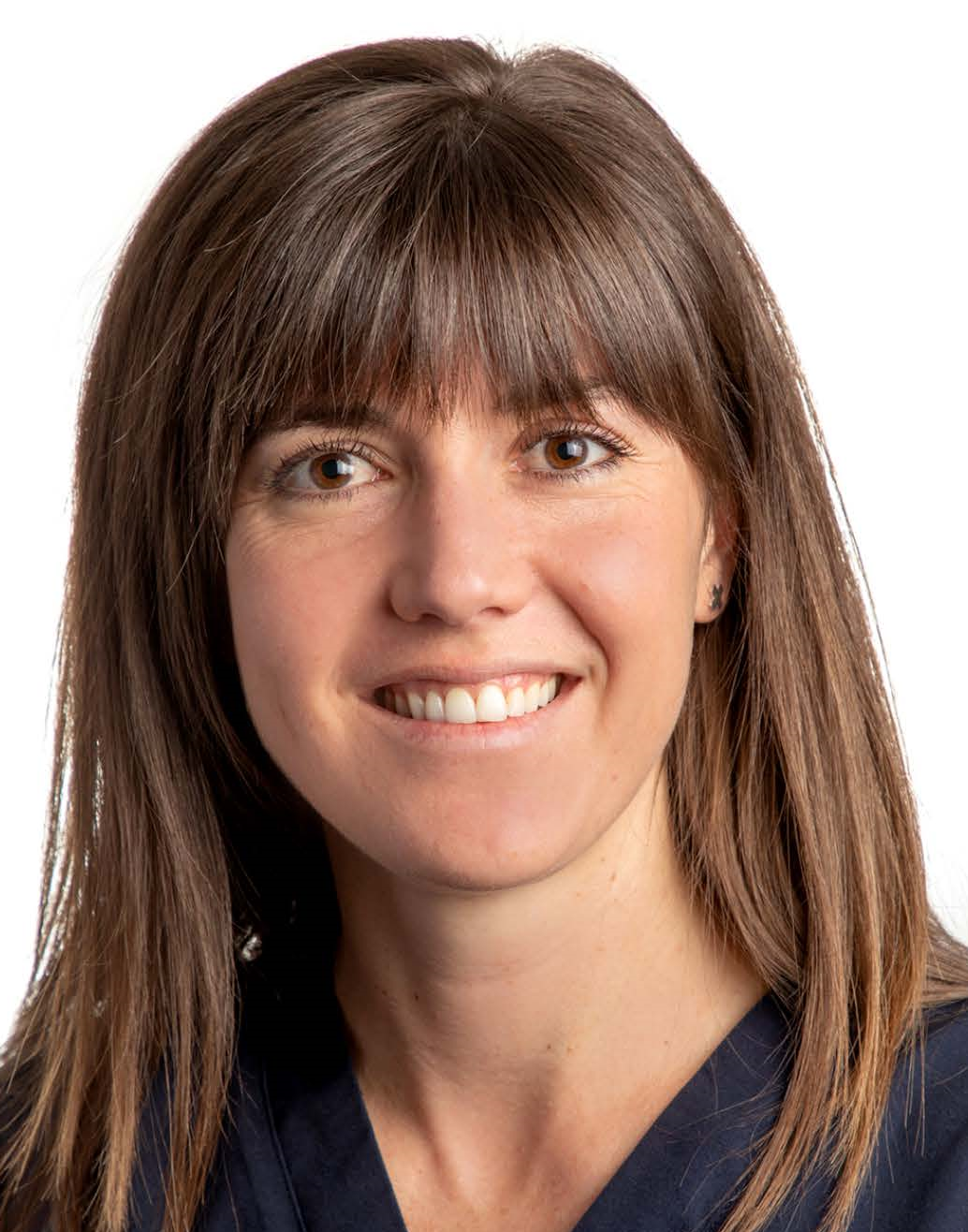
Dr. Kate Thomas is a Senior Lecturer in the Department of Surgical Sciences (Dunedin) at the University of Otago in New Zealand. Her research specialization is in Exercise physiology and prescription, heat therapy, peripheral arterial disease.
UBC Vancouver’s School of Kinesiology, UBC Okanagan’s School of Health and Exercise Sciences hosts a monthly UBC Exercise, Kinesiology, and Health Seminar Program. The seminar program is a forum for critical academic discussion between students and faculty members from all disciplines.
The seminars are designed to expand knowledge about topics from the broad field of kinesiology and health studies for graduate students and faculty members.
All webinars are recorded.
Closing the gaps: Using a team science-based approach to study IPV-related head trauma
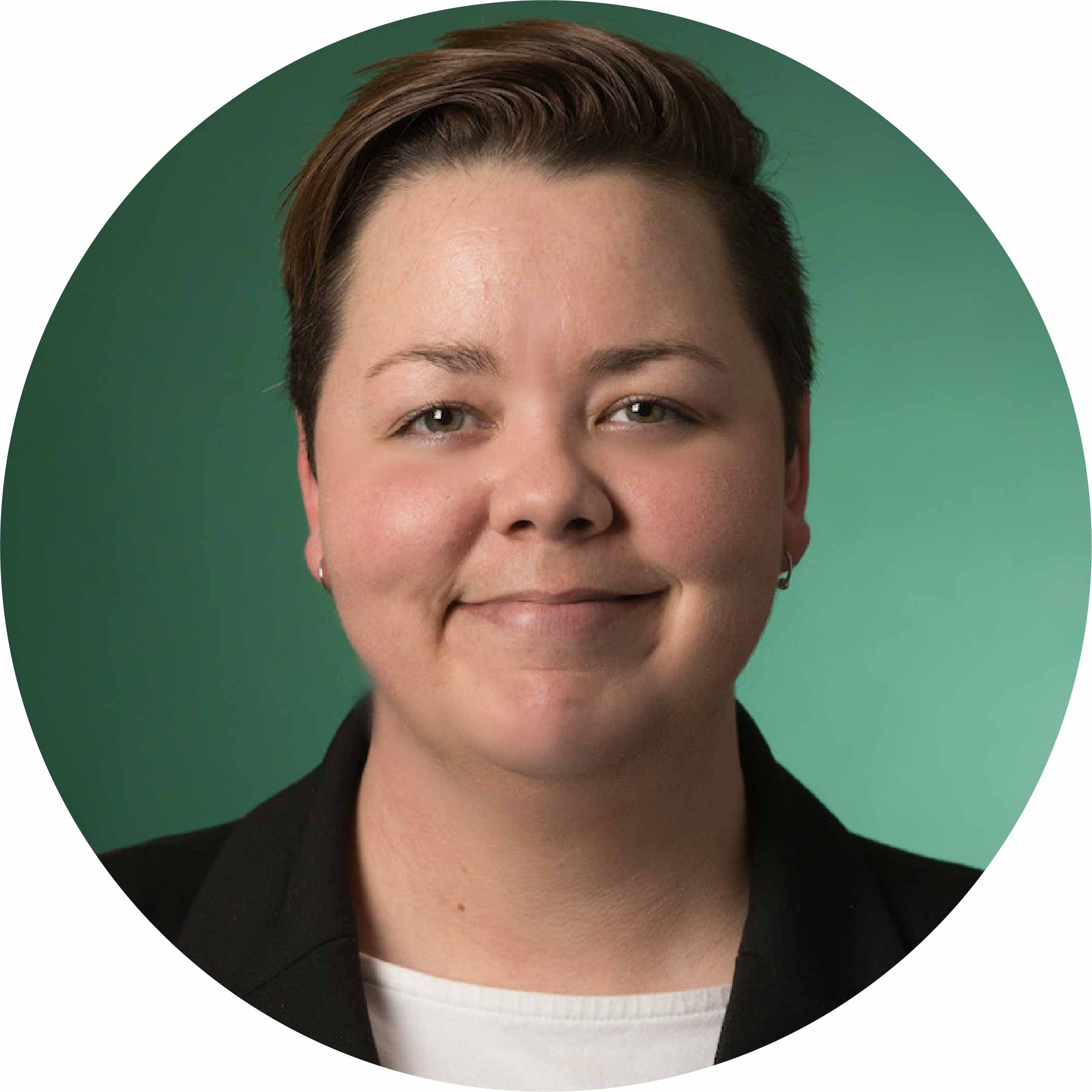
Dr. Esopenko is an Assistant Professor at Rutgers Biomedical and Health Sciences in the Department of Rehabilitation and Movement Science, and is a Full Faculty Member in the School of Graduate Studies and Department of Kinesiology and Applied Physiology. She is the Rutgers Principal Investigator for the Big 10/Ivy League Epidemiology of Concussion Study and a member of the study advisory committee.
She is also the Lead Investigator of the ENIGMA Intimate Partner Violence (IPV) Working Group and a member of the Sports-Related Brain Injury, Military, and TBI Working Groups. Her research focuses on developing sex-specific prevention strategies for sports-related concussion and examining the psychiatric, cognitive, and neuronal signatures of IPV-related head trauma.
Accessibility and Inclusion: Unleashing the Potential of People with Disabilities
Rick Hansen, C.C., O.B.C. is a Canadian icon who has dedicated his life to awakening the world to the potential of people with disabilities. He is best known as the “Man In Motion” for undertaking an epic 26 month, 40,000 km journey around the world in his wheelchair. Rick is also a three-time world champion, nine-time Pan Am gold medalist, and six-time Paralympic medalist. He is the Founder of the Rick Hansen Foundation, an organization committed to creating an inclusive world where people with disabilities are living to their full potential.
For over three decades, Rick and his team have been focused on the removal of barriers. Currently, Rick and the Foundation are rethinking how people of all ages and abilities access spaces where we live, work, learn and play. The Rick Hansen Foundation Accessibility Certification™ (RHFAC) is the only program that rates, certifies, and showcases accessible buildings based on their level of meaningful access for persons with mobility, vision and hearing disabilities. To date, more than 1,350 sites across Canada have been rated through the program.
5 Lessons I Learned Along the Way to a Small-Town University Dr. Lam is an Associate Professor in the Department of Human Kinetics at St. Francis Xavier University in Nova Scotia. She completed her MSc and PhD in the School of Kinesiology at UBC under the supervision of Dr. Romeo Chua. This was followed by a Postdoctoral Fellowship at California State University Fullerton in the Department of Kinesiology. Dr. Lam states, "What fascinates me about human movement is the body’s ability to adapt to changes within itself (e.g., neurological disorder) and within the environment. My research has primarily focused on how others around us impact the planning and execution of our actions. More recently, we explored how the presence of another person and the connection you have with them can alter how visual information is processed. To satisfy my need to learn from others, I enjoy collaborating with researchers from different departments and universities. My research is currently being supported and funded by an NSERC Discovery Grant. After completing my first-year science courses, it became abundantly clear that I was not going to become a (medical) doctor as I once hoped. And so, I was left with that same dreaded question that I asked myself when I finished high school, “What do I want to be when I grow up?” Over the next two years, I went from wanting to be a doctor, to an RCMP officer, to a lawyer, and at one point a forensic entomologist. You may be wondering, “How did she end up in academia?” My presentation will shed light on my ‘not-so-perfect”, but ultimately rewarding, academic journey to a small-town university. I will also share 5 lessons I learned along the way to my current position as an Associate Professor at a small, primarily undergraduate university. I will also present an overview of my research in joint action and the collaborative research I'm currently pursuing."
Elements Affecting Athlete Development Over Time Dr. Côté is Professor in the School of Kinesiology and Health Studies at Queen’s University where he served as the Director of the School from 2006-2019. He is a Fellow of the Canadian Society for Psychomotor Learning and Sport Psychology (SCAPPS) and the International Society of Sport Psychology (ISSP). Dr. Côté’s research interests include the examination of (a) the interaction between youth, their social dynamics (coaches, parents, peers), and the environment for the development of personal assets and excellence in sport, and b) the factors that affect personal development, participation, and performance in sport. Since 1999, he has received as a Principal Investigator seven consecutive grants from the Social Sciences and Humanities Research Council of Canada (SSHRC) to fund his research work. His most recent Insight Grants involve the examination of parents as “consumers” in the youth sport system and the use of observation techniques to examine the influence of Transformational Coaching on athletes’ development. He had the opportunity to work with and mentored 9 Post-Doctoral Fellows, 14 Doctoral students and 31 Master students who have pursued careers as academics and other service-related professions. In 2012, Dr. Côté received the Award for Excellence in Graduate Supervision for the Social Sciences and Humanities at Queen’s University.
The event took place at the Chan Gunn Pavilion in Room 200.
Rostral fluid shifts as a unifying mechanism between asthma and sleep apnea, and the novel role of exercise
Dr. Yadollahi holds a Canada Research Chair-Tier 2 in Cardio-Respiratory Engineering, is a Senior Scientist at the University Health Network’s KITE research institute (UHN-KITE), an Associate Professor at the University of Toronto's Institute of Biomedical Engineering, and an adjunct faculty member at the University of Manitoba. Dr. Yadollahi is a strong advocate of inclusion, diversity, equity, and accessibility (IDEA), and chairs UHN Research’s IDEA committee. Her research aims to improve understanding of the pathophysiology of cardio-respiratory disorders during sleep, and to develop novel technologies for improved management of these disorders. She is particularly interested in developing innovative technologies for monitoring of physiological signals at home and implementing equitable and accessible technologies for under-represented individuals with chronic cardio-respiratory disorders. To date, Dr. Yadollahi has authored and co-authored more than 50 peer-reviewed manuscripts, presented over 100 times in scientific conferences, filed 3 patents, and is a regular invited speaker at prominent national and international academic institutions and conferences.
Problematizing the ‘control the controllable’ narrative: How elite athletes are differently situated to thrive in the face of stressful events throughout their athletic careers In this seminar, Dr. Erica Bennett will discuss her research attending to elite athletes’ experiences of privilege and marginalization in shaping how they cope with and adapt to stressful events throughout their athletic careers. Erica completed her BA in Psychology and MA and PhD in Sport and Exercise Psychology at The University of British Columbia (UBC). She then went on to complete Postdoctoral Fellowships at UBC in the School of Kinesiology and Faculty of Medicine, and for a year was an Instructor at Douglas College in Sport Science. She is currently an Assistant Professor in Health, Culture, and Inclusion in the School of Kinesiology at UBC. Her program of research attends to the psychological, behavioural, and sociocultural factors shaping sport, exercise, and health-related adaptational processes across the life course. This includes research with elite athletes, older adults, and people with chronic conditions and disabilities.
2020/2021 Seminar Series:
Dr. Maureen MacDonald
Training your arteries – vascular function with exercise training in healthy and clinical populations

Maureen J MacDonald received her Honours BSc in Chemistry from Acadia University, Canada, in 1991 and her MSc (1993) and PhD (1998) in Kinesiology from the University of Waterloo, Canada. After post-doctoral research fellowships at the University of British Columbia and the University of Western Ontario she started her academic career as a faculty member at Wilfrid Laurier University. Since 2000 she has been a faculty member in the Department of Kinesiology at McMaster University, Hamilton, Canada, where she is a full professor and is the Dean of Science.
Dr. MacDonald the director of the Vascular Dynamics Laboratory. Her research interests are in the area of integrative exercise physiology. Most recently, together with her research team, she has been examining the impact of high intensity interval training on the blood vessels and heart in individuals with coronary artery disease and the use of heat therapy as an alternative to exercise training. She normally teaches a weekly high intensity interval training class in the McMaster fitness facility which is now being offered remotely from her family room due to the pandemic.
Dr. Daniel Lieberman
Are we born to rest or run?
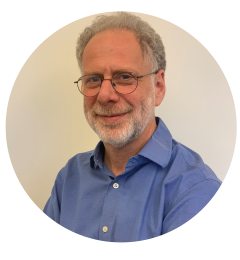
Daniel Lieberman is Professor and Chair of the Department of Human Evolutionary Biology, and the Edwin M. Lerner II Professor of Biological Sciences at Harvard University. He is also a member of Department of Organismic and Evolutionary Biology. He was educated at Harvard (AB ’86 Summa cum Laude, PhD ’93) and Cambridge (M.Phil. ’97).
His research is on how and why the human body is the way it is, and the relevance of human evolution to contemporary health. Major research foci include the evolution of long distance walking and running abilities, the effects of shoes on locomotor biomechanics and injury, and the evolution of the highly unusual human head. To address these questions, he combines experimental biomechanics and physiology, paleontology, and comparative anatomy.
He has ongoing fieldwork projects in Kenya and Mexico. At Harvard, he teaches a variety of courses on human evolution, anatomy, and physiology. In addition to many articles, he has published several books including The Evolution of the Human Head (Harvard University Press, 2011), and The Story of the Human Body (Pantheon, 2013). He is an avid runner.
Dr. Janelle Joseph
Anti-Racist and Decolonial Approaches to Exercise Sciences.
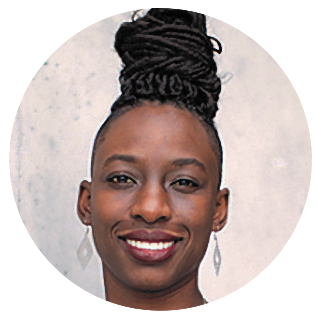
Although the diversity among participants in Canadian athletic spaces and students in Kinesiology and Exercise Sciences programs has steadily increased, our organizations still struggle to develop a deep understanding of (anti-)racism issues, awareness of ongoing structural barriers, and actions to ensure representation and justice for those who experience racialization and oppression. Dr. Joseph will share her perspectives on decolonizing sport studies and her research that takes a data-driven, evidence-based approach to exposing the operations of whiteness in sport and education.
Dr. Janelle Joseph is an award-winning Assistant Professor in Critical Studies of Race in the Faculty of Kinesiology and Physical Education at the University of Toronto. She is Founder and Director of the Indigeneity, Diaspora, Equity, and Anti-racism in Sport (IDEAS) Research Lab and author of the text Sport in the Black Atlantic: Cricket Canada and the Caribbean Diaspora. Dr Joseph’s current research focuses on decolonizing sport studies, and anti-racism activism among Black athletes and educators.
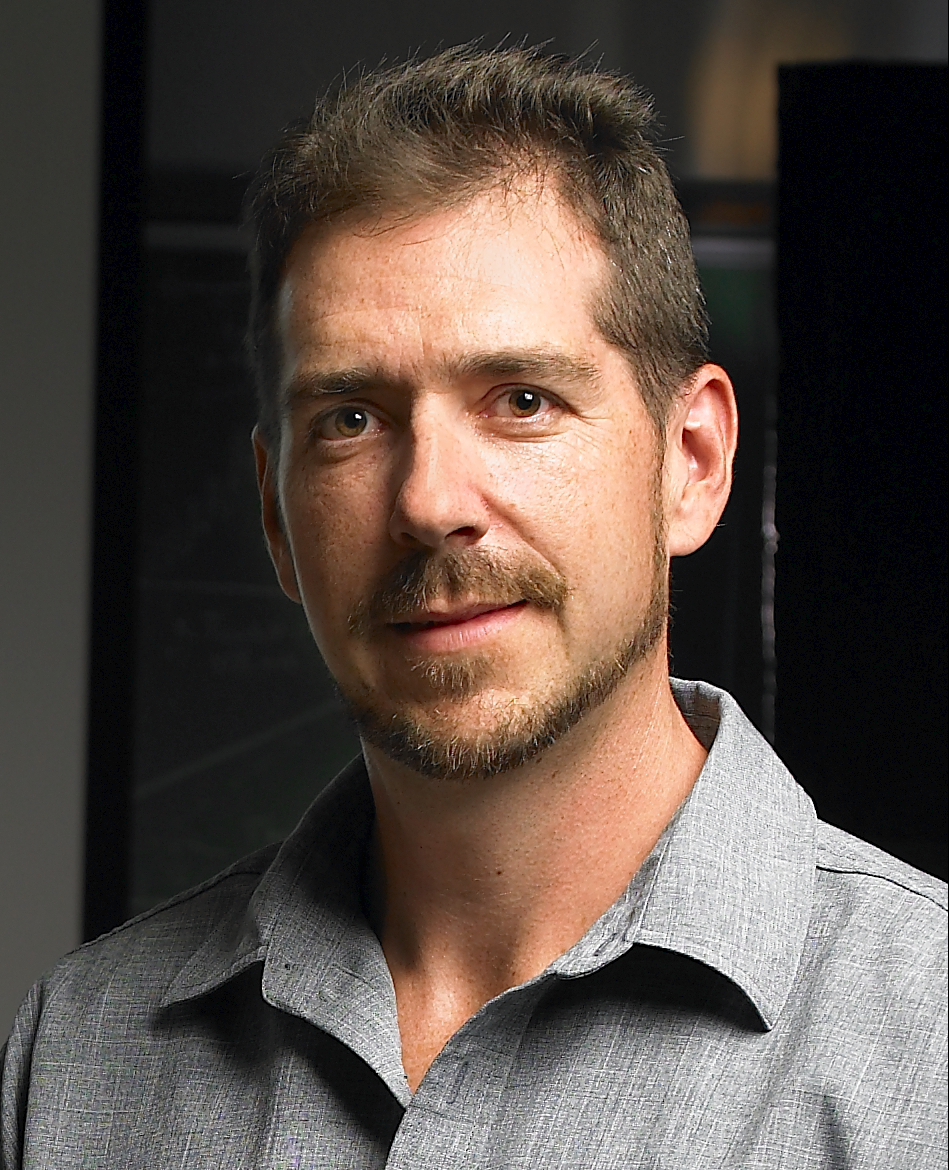
Dr. Paul E Zehr
Professor, Sensorimotor Neuroscience, University of Victoria.
From Batman to Brain and Back Again.
A life in science is a journey that rarely follows a strict and linear path. This “fireside chat” outlines a perspective and lived experience of following the passions of martial arts, popular culture, and knowledge sharing as they converge in a career in sensorimotor neuroscience.
Dr. Corliss Bean
Collaborating with Community Organizations to Facilitate Healthy Development.
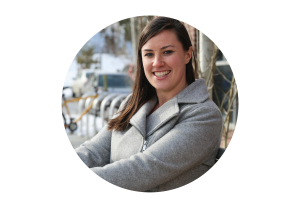
Dr. Corliss Bean is an Assistant Professor in the Department of Recreation and Leisure Studies at Brock University. Her research involves working with community organizations at local and national levels to development, implement and evaluate programming with the goal of fostering youth psychosocial development. Corliss is also a member of Youth Research and Evaluation eXchange’s Provincial Academic Network. Dr. Corliss’s interests include positive youth development, life skill development, sport psychology, girls and women, and coaching.
Dr. Janice Forsyth
Associate Professor, Sociology
Director, Indigenous Studies
Faculty of Social Science, Western University
Land, rights, and reciprocity: Indigenous sport is not an EDI issue
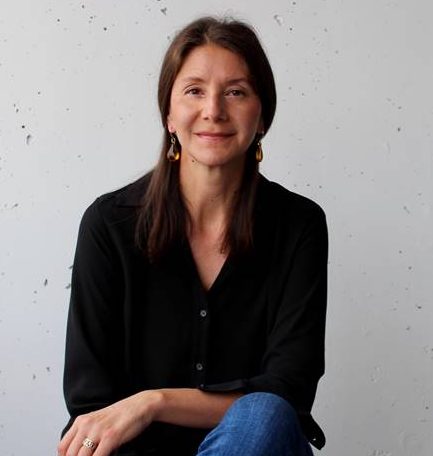
Public dialogues about Indigenous sport in Canada are typically inserted into equity, diversity, and inclusion (EDI) categories. While certainly there are overlapping areas of concern, such as increasing the number of Indigenous athletes and coaches in competitive sport and addressing racism, framing Indigenous sport as an EDI issue poses fundamental challenges for Indigenous people.
Not only does it reinforce settler colonial beliefs, practices, and structures about sport, it marginalizes the critical ways Indigeneous people are using sport for Indigenous nation-building and cultural revitalization. In this presentation, I make a distinction between Indigenous vs. settler sport to explain why Indigenous sport must be understood apart from EDI frameworks and the pitfalls, especially for researchers, of not making this distinction.
Dr. Jennifer Heisz
Exercise for Brain Health.

Dr. Heisz is an Associate Professor in Kinesiology and Associate Director (Seniors) of the Physical Activity Centre of Excellence at McMaster University. Dr. Heisz received her Ph.D. in Cognitive Neuroscience (McMaster) and completed a postdoctoral fellowship at the Rotman Research Institute at Baycrest. Dr. Heisz directs the NeuroFit Lab (www.neurofitlab.com) which is funded by the Alzheimer Society, Banting Foundation, Natural Science and Engineering Council of Canada, and the Canadian Foundation for Innovation. Dr. Heisz’s research examines the effects of physical activity on brain function to promote mental health and cognition in young adults, older adults and individuals with Alzheimer’s disease. Recent honours include receiving an Early Researcher Award from the Government of Ontario and the Petro-Canada Young Innovator Award.
Dr. Jordan Guenette
An exercise physiologist's approach to rehabilitation research.
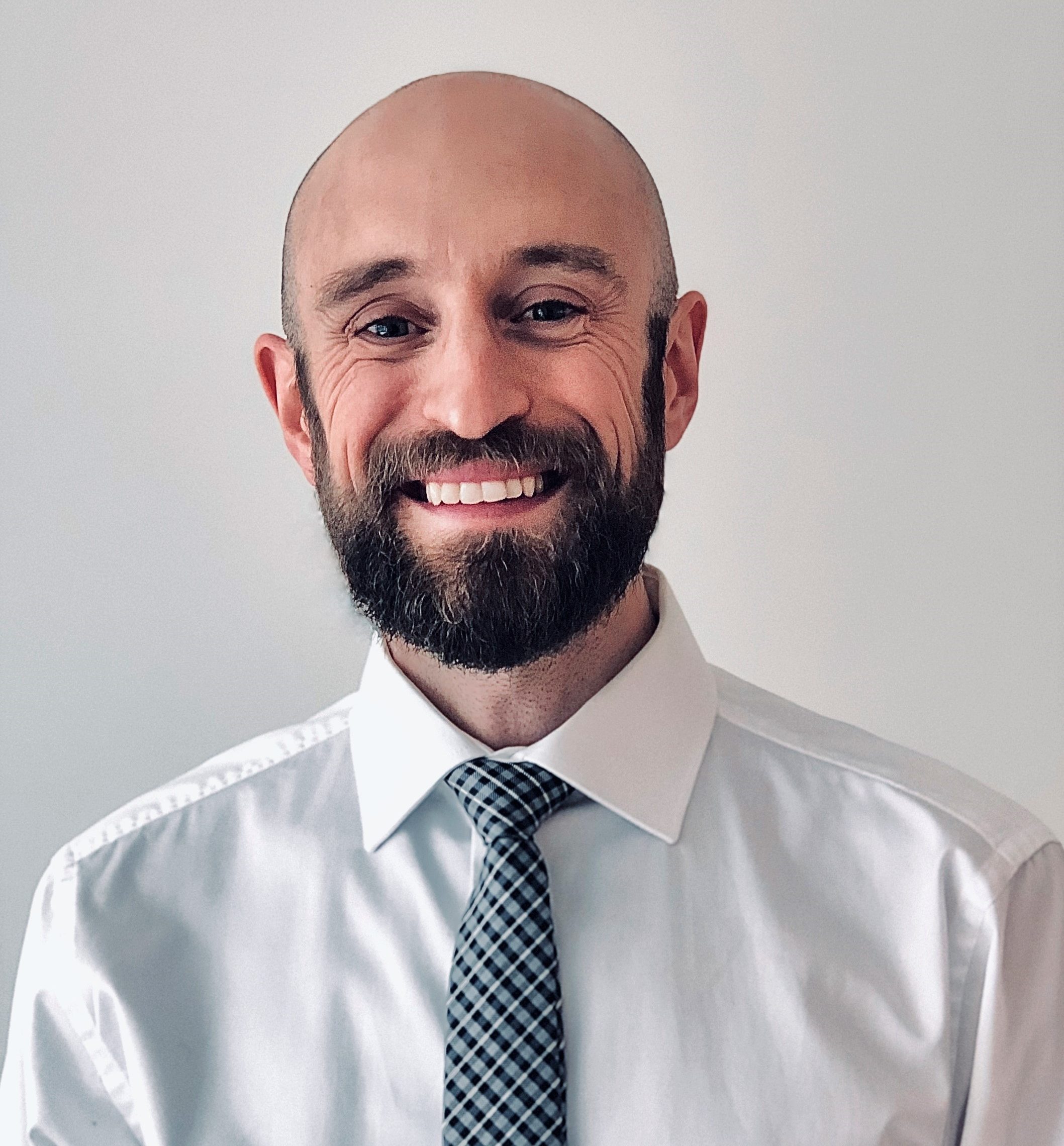
Dr. Guenette received his BHK, MSc and PhD in the School of Kinesiology at the University of British Columbia and his postdoctoral fellowship in the Department of Medicine at Queen’s University. Dr. Guenette is currently an Associate Professor in the Department of Physical Therapy at UBC and is the Associate Director of the UBC Centre for Heart Lung Innovation at St. Paul's Hospital. The goal of his research program is to develop more effective rehabilitation interventions to improve exercise performance, symptoms, and quality of life for those suffering from chronic respiratory diseases.
Dr. Karla Galaviz
Diabetes prevention approaches: The efficacy and effectiveness of lifestyle modification.
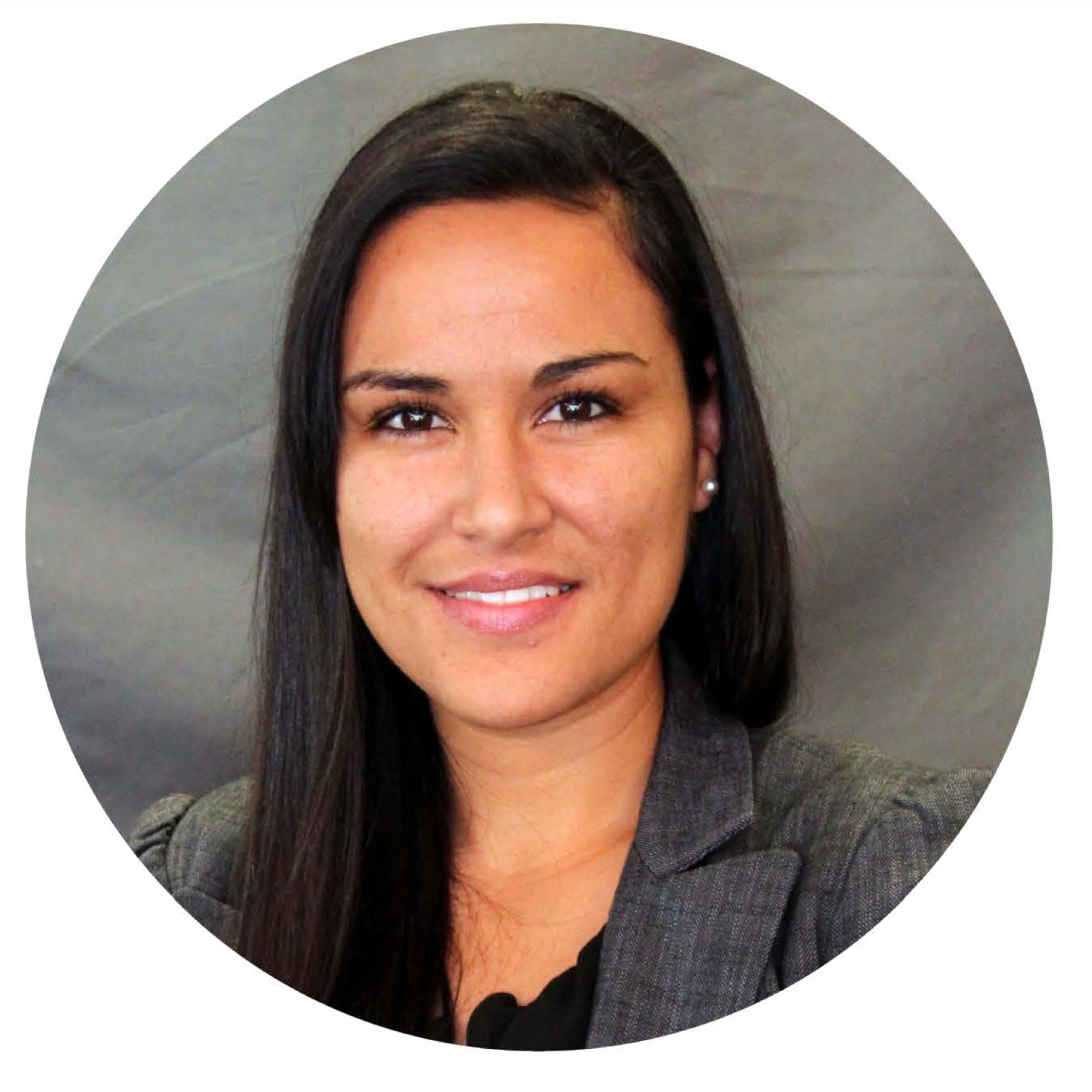
Dr. Galaviz obtained her BA from the University of Guadalajara, Mexico, her MSc and PhD from Queen’s University, Canada, and completed a post-doctoral fellowship at Emory University, US. Galaviz is now an Assistant Professor of Global Health at Emory. She is an implementation scientist working at the intersection of lifestyle, HIV and cardiometabolic diseases. Her work encompasses implementing proven diabetes prevention interventions in real-world settings and developing tools to inform public health and clinical practice.
Dr. Pascal Bernatchez
The endothelium and endothelial function in atherosclerosis and heritable aortopathies: from bystanders to drug targets.
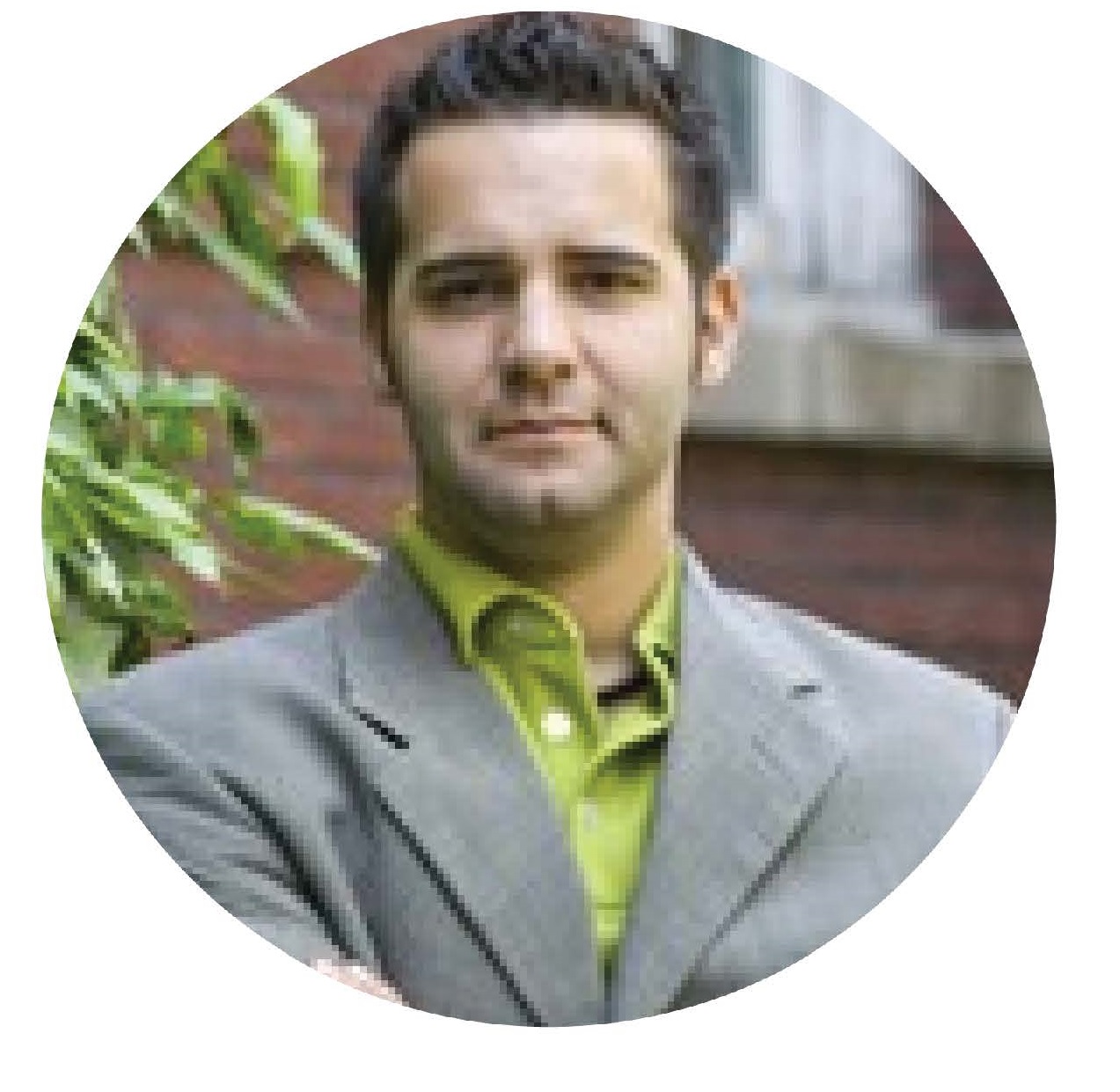
Dr. Pascal Bernatchez has a long track-record of studying blood vessels. He earned his B.Sc. in Biochemistry from the University of Montreal (1997). His graduate training was done in Dr. Martin G. Sirois’ laboratory at the Montreal Heart Institute where he obtained his M.Sc. (1999) and Ph.D. (2003) degrees in collaboration with the Department of Pharmacology at the University of Montreal, where he received 7 studentships and 12 academic awards. He then trained as a post-doctoral fellow in Dr. William C. Sessa laboratory at Yale University (2003-2007), where he studied novel molecular approaches to increase the synthesis of atheroprotective Nitric Oxide.
Since his relocation to the University of British Columbia in 2007, Dr. Bernatchez has received major research grants and awards. He was a Scholar from the Canadian Institutes of Health Research (CIHR) and Michael Smith Foundation for Health Research (MSFHR). His laboratory receives operations funding from CIHR, MSFHR, HSFC, NSERC, the Rare Disease Foundation, MITACS and the Jain Foundation. His current and past MSc and PhD students have received salary awards / graduate studentships from CIHR, NSERC, the BC Proteomics Network and the Governor General of Canada.
Dr. Calvin Kuo
Measuring Human Motion in the Wild.
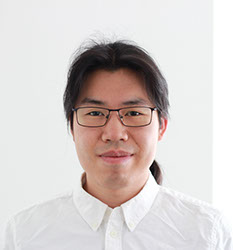
Calvin Kuo is a new assistant professor in the School of Biomedical Engineering heading the human motion biomechanics laboratory (HuMBL: http://humbl.bme.ubc.ca/) based out of the Centre for Hip Health and Mobility at the Vancouver General Hospital. His work focuses on the use of wearable inertial measurement unit sensors to study human motion in natural real-world environments. In particular, he is interested in quantifying the biomechanics of impacts in order to study mechanisms of injury such as anterior cruciate ligament tears or mild traumatic brain injuries, and also study how humans respond to and recover from sudden movement perturbations. His lab also studies how the brain utilizes its own biological inertial measurement unit sensors, the vestibular organs located in the inner ear, to perceive its own movements in space.
Here, he employs statistical models to understand how sensory afferent neurons encode uncertainty and how the brain interprets noisy information to form sometimes illusory perceptions. As a member of SBME, he also works directly with clinicians to develop tools to automatically assess human movement for clinical or diagnostic purposes. As an example, he is currently working with members of the BC Children’s hospital to automatically identify abnormal movement behaviors indicative of psychological disorders in videos of children. While the lab's research covers different topics, the theme of the research lies in the study of human movement. Prior to his position at UBC, Calvin obtained his PhD in Mechanical Engineering from Stanford University and was a Killam postdoctoral fellow under Jean-Sebastien Blouin in Kinesiology and Dinesh Pai in Computer Science at UBC.
Professional Development Sessions:
Title: Professional development session on Alternative careers after PhD
Panel of invited speakers
Date: March 10th, 3:30 pm.
This is a professional development session targeted to graduate students.
Invited Speakers:
- Dr. Adam Campbell (PhD Kinesiology, Neuromechanics 2012) Practice Lead, Human Factors.
- Dr. Justin Davis (PhD Human Kinetics 2010) Medical and Scientific Liaison, Merck Pharmaceuticals.
- Dr. Ben Sporer, Director, Performance Strategy, Research, and Innovation - WhiteCaps FC.
- Dr. Jane Labreche, (Bkin 99, MSc Kin 01, PhD 13), Sport Science and Medicine Advisor, Own The Podium.
Careers after Graduate School
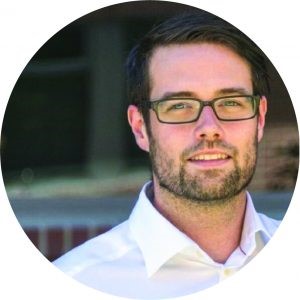
Mike Kennefick (PhD), Business Development Specialist, Mitacs
Dr. Kennefick is a graduate of the School of Health and Exercise Sciences at UBC Okanagan where he conducted his research in the field of behavioural neuroscience. Over the course of his doctoral and postdoctoral studies, he was involved in various partnered research projects that used an integrated knowledge translation approach. Following the completion of his postdoctoral studies, he joined Mitacs as a Business Development Specialist where he creates partnered research opportunities for students between academia and industry.
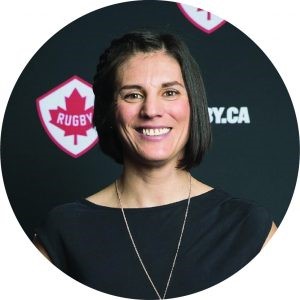
Maria Gallo, PhD, Director, Masters of High Performance Coaching & Technical Leadership Program at UBC
As a trained coach and retired national team athlete (rugby and bobsleigh), Maria is able to supplement her teaching and can interest the students further with real-life examples and cases encountered in the world of sports science. Her current role as the Head Coach of the Women’s Varsity Rugby Team compliments her duties as the primary advisor of the Master in Kinesiology (coaching stream) and the new Graduate Program in High Performance Coaching and Technical Leadership.
Maria is strongly committed to the highest pedagogic standards and dedicated to achieving outstanding distinction in areas of instruction and service.
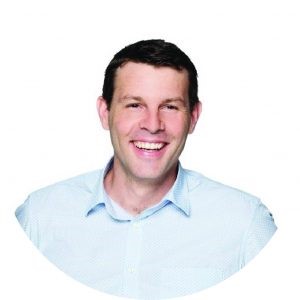
Matt Dolf, PhD, Director, Strategic Support UBC Wellbeing
Matt’s diverse career is connected by a passion for deepening our understanding of how societies can promote human and ecological wellbeing. He is currently the Director for UBC Wellbeing, a collaborative effort to make UBC a health promoting university where all people, places, and communities can flourish. His other roles include leadership positions with the Canadian Health Promoting Campuses Network; the UBC United Way Campaign; the Vancouver 2014 Special Olympics Canada Summer Games; Tennis BC; and the Intentional Academy of Sports Science & Technology in Lausanne, Switzerland. Matt holds a Doctorate in the field of sport and sustainability from the UBC School of Kinesiology, a Master in Sports Administration from the Swiss Federal Institute of Technology Lausanne, and a B.A. in Sport and Leisure Administration from UVic. He has researched and published in the areas of sport management, environmental impact assessment, sustainability, and health promotion. Matt has lived on four continents, speaks three languages, and loves nothing more than spending time outdoors with his wife and daughter.
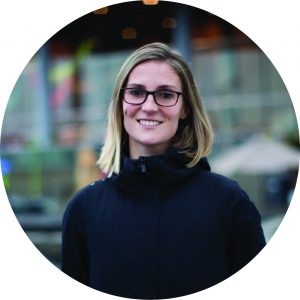
Chantelle Murnaghan, PhD, Director, Whitespace Labs at lululemon
As Director of the Whitespace Labs with lululemon, Murnaghan leads a team, which provides scientific insights, research and advanced prototyping to support the entire product creation process; enabling new business value generation and ensuring we launch products, services and experiences that solve true guest needs and deliver technical storytelling.
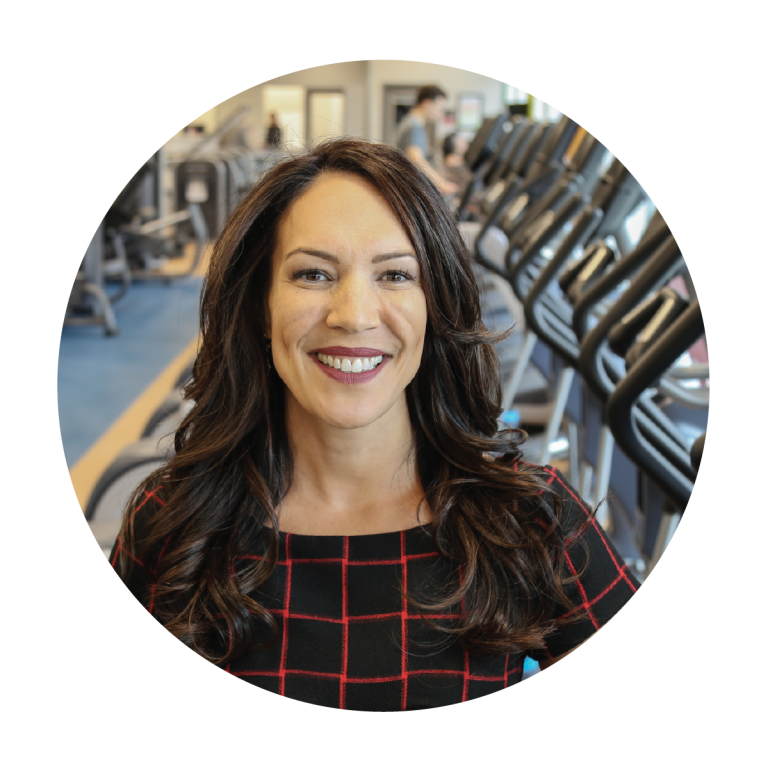
Mary Jung, PhD, Director of Diabetes Prevention Research Group
Mary is an Associate Professor in the School of Health and Exercise Sciences. She is the Director of the Diabetes Prevention Research Group and Small Steps for Big Changes. Mary’s major research area is self-regulation of health behaviours, with a specialization in exercise, physical activity, and dietary behaviours, and the creation of community-based self-regulatory skills interventions for individuals at risk or living with Type 2 Diabetes.
Zoom Registration link: Click Here.
COVID-19 Webinar:
Being physically active is as good for the mind as it is for the body. In fact, the BC Provincial Health Authority recommends that people stay active during the COVID-19 pandemic to help support overall well-being.
This webinar explores the role that different types of physical activity play in improving stamina, resilience, sleep, cognitive function, and how we feel and think in our everyday lives. Learn how physical activity affects the brain and helps us manage stress and trauma. Discover professional approaches to starting or maintaining a physically active lifestyle in this time of physical distancing, uncertainty and seasonal change.
Presented in partnership with UBC Faculty of Medicine and UBC School of Kinesiology, Faculty of Education.
Moderator:
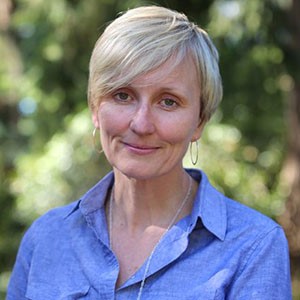
Kathryn Gretsinger, MJ’06 – Associate Professor of Teaching, UBC School of Journalism, Writing & Media; Director, Global Reporting Centre; Journalist; Senior Faculty Advisor to the UBC President. She is a longtime public broadcaster at the Canadian Broadcasting Corporation, with a record of creating award-winning work at the local and national level in Canada. Kathryn is also a Killam Teaching Prize winner and she was named as one of North America’s top innovative journalism educators in 2018.
Kathryn leads the School’s Integrated Journalism course, where students learn about professional practice, journalism skills and digital technologies. She also coordinates the internship program and supports students transitioning into professional practice. She has helped to place students in professional practicums across the country and around the world. As a key member of the Global Reporting Centre, she works as an instructor and producer for the annual Global Reporting Program projects and helps to shape conversations about local and global journalism. She is also an instructor for UBC’s unique Reporting in Indigenous Communities course.
There is a strong social justice undercurrent to Kathryn’s work. Her commitment to teaching, reporting and fostering dialogue about issues of social justice, Indigenous relations and mental health appear in the courses she teaches and key collaborations, including the National Student Investigative Reporting Network and her work with UBC’s mental health and wellness community of practice.
Experts:
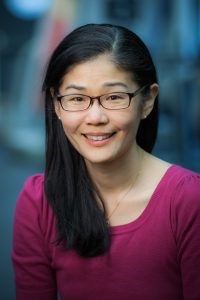
Dr. Teresa Liu-Ambrose, BSc’94, MSc’98, PhD’04 – Professor, Canada Research Chair in Physical Activity, Mobility, and Cognitive Neuroscience, UBC Department of Physical Therapy, Faculty of Medicine; Lead of the Physical Activity for Precision Health Research Cluster.
Dr. Teresa Liu-Ambrose, PhD, PT, is a Professor in the Department of Physical Therapy, Co-Director of the Centre for Hip Health and Mobility, and Canada Research Chair in Physical Activity, Mobility, and Cognitive Health. Dr. Liu-Ambrose is an associate member of the Djavad Mowafaghian Centre for Brain Health. Dr. Liu-Ambrose’s research focuses on understanding the role of exercise in promoting cognitive and mobility outcomes in older adults. Her research findings have been implemented into clinical practice, community programs, and influenced international practice guidelines to promote healthy aging.

Dr. Eli Puterman, MA’04, PhD’09 - Assistant Professor, Canada Research Chair in Physical Activity and Health, Michael Smith Foundation for Health Research Scholar, UBC School of Kinesiology, Faculty of Education; Co-Lead of the Physical Activity for Precision Health Research Cluster
Dr. Eli Puterman is Assistant Professor and Canada Research Chair in Physical Activity and Health. His research seeks to understand the interplay among stress, aging, and exercise. Dr. Puterman is developing and tailoring intervention trials, supplemented with laboratory-based stress manipulations and ambulatory psychological assessments, to examine the effects of habitual physical activity on immune cell health (i.e. telomere biology, mitochondria biogenesis), epigenetic alterations and protein synthesis, autonomic and neuroendocrine stress reactivity, and ecologically assessed affective and cognitive reactivity.
Dr. Puterman is Co-Lead of the Physical Activity for Precision Health Research Cluster at UBC. It is the mission of the cluster, in collaboration with community members, to develop, test, implement, and monitor physical activity programs that are tailored with precision to the varied needs of children and adults of varying demographics, capacities, and health statuses.
Summer 2020 Seminar Series:
| Date | Topic |
|---|---|
| May 8 | Dr. Robert Shave, Professor & Director of the School of Health & Exercise Sciences, UBC Okanagan "Has the human heart been selected for endurance exercise?" |
| May 15 | Dr. Rober Boushel, Professor & Director of the School of Kinesiology "Cardiovascular and muscle metabolic adaptations to dynamic exercise training" |
| May 22 | Dr. Kathleen Martin Ginis, UBC Okanagan "Exercise and spinal cord injury: From guidelines to practice" |
| May 29 | Dr. John Kramer, UBC Vancouver "Quantifying pain: Is it possible and should you care?" |
| June 5 | Dr. Phil Ainslie, UBC Okanagan "Regulation of cerebral blood flow in humans; Old concepts, new ideas" |
| June 12 | Dr. Andrea Bundon, UBC Vancouver "Disability sport research as advocacy work" |
| June 19 | Dr. Jonathan Little, UBC Okanagan "Nutritional ketosis in health and performance" |
| June 26 | Dr. Eli Puterman, UBC Vancouver "Exercising during stressful experiences: Impacts on physical and psychological wellbeing" |
“Has the human heart been selected for endurance exercise?”
Presented by: Dr. Rob Shave, director of UBCO- School of Health and Exercise SciencesDr. Robert Shave’s research examines the acute and chronic effects of exercise and/or environmental stress upon the heart.Using echocardiography and biomarkers Dr. Shave and his colleagues have provided insight into the beneficial and potentially negative effects of endurance exercise upon the heart, the influence of exercise on cardiac remodeling and the ventricular mechanics that underpin cardiac function in health and disease.Recently, Dr. Shave established the International Primate Heart Project to examine heart disease in great apes and to provide insight into the evolution of the human heart. Dr. Shave’s work will continue to combine comparative and experimental physiology approaches to further understand structural and functional cardiovascular adaptations to exercise in a range of populations with a specific focus on human evolution and the potential of cardiovascular mismatch disease.
